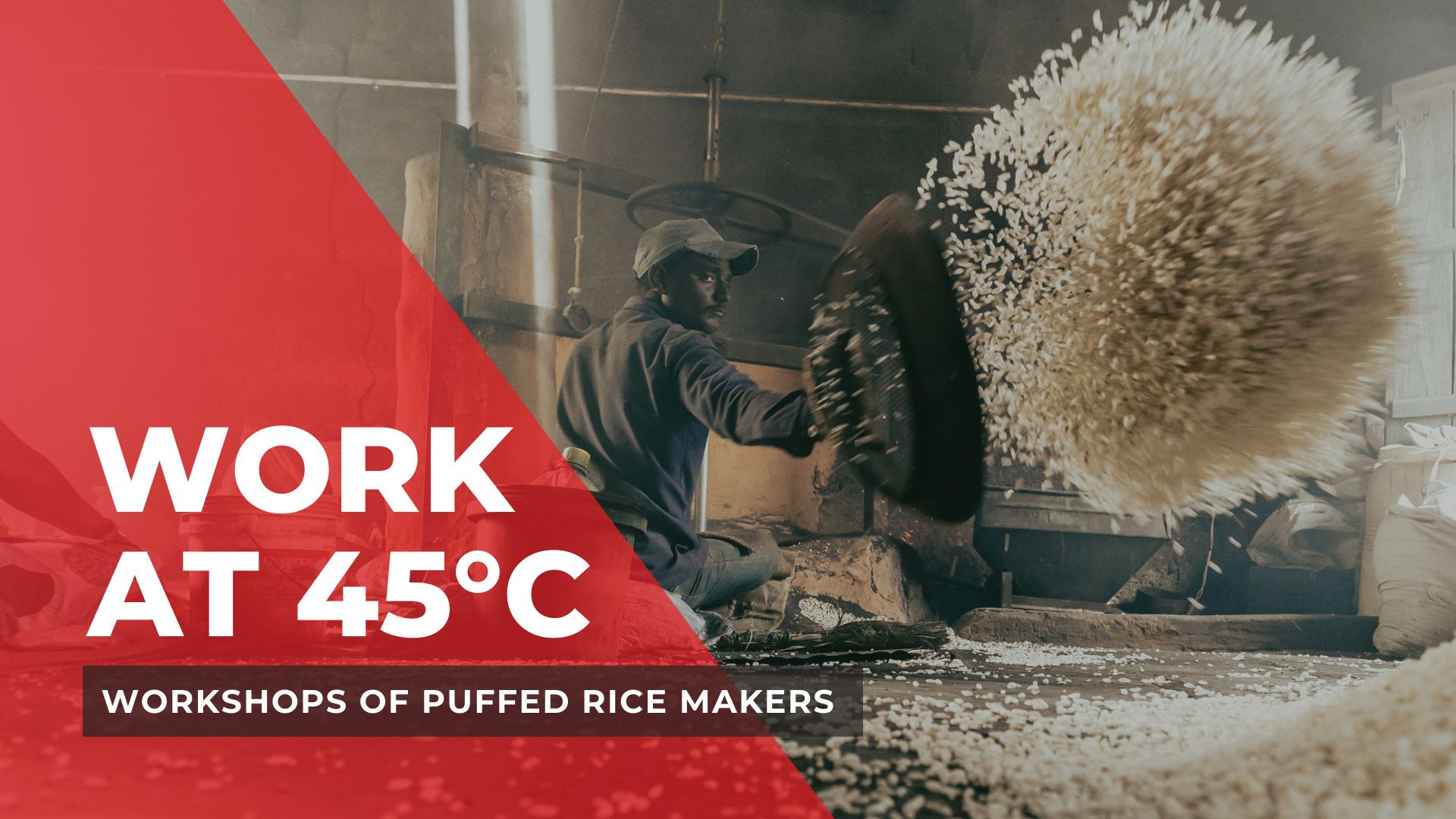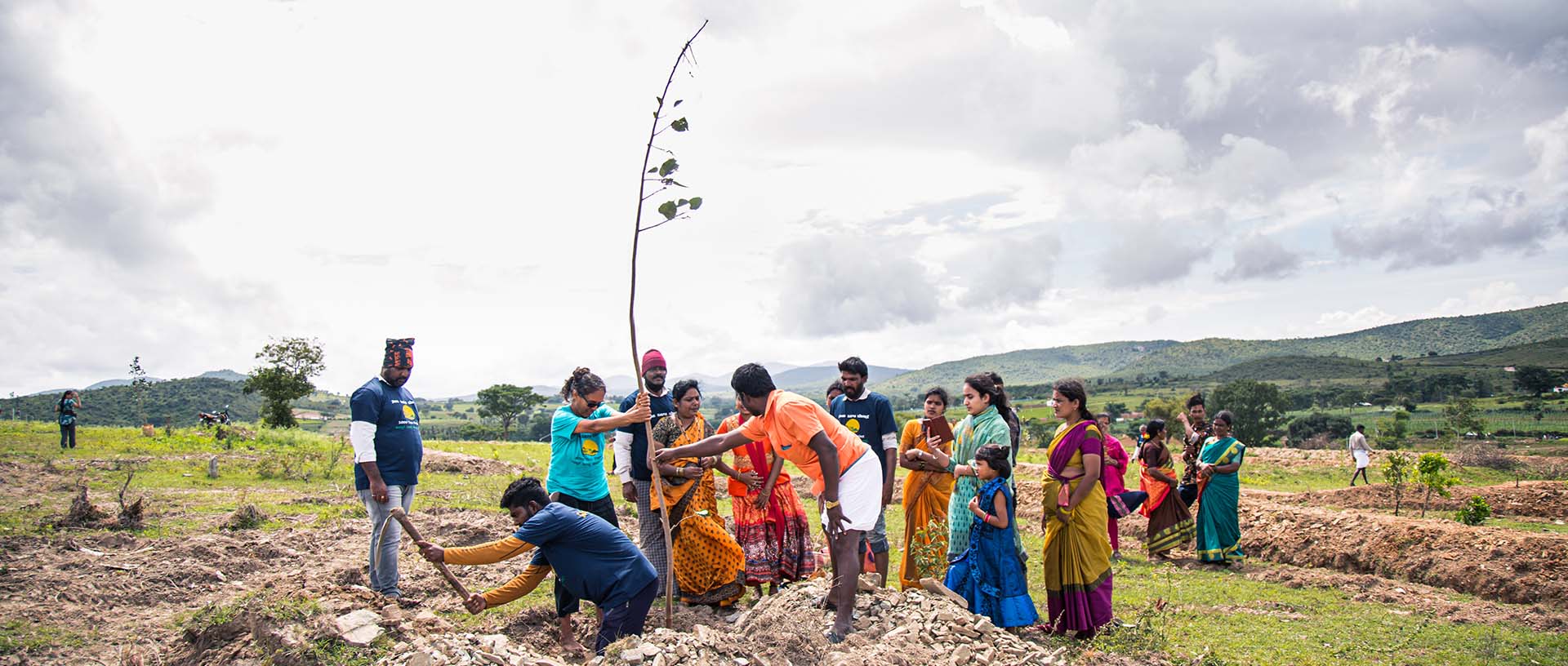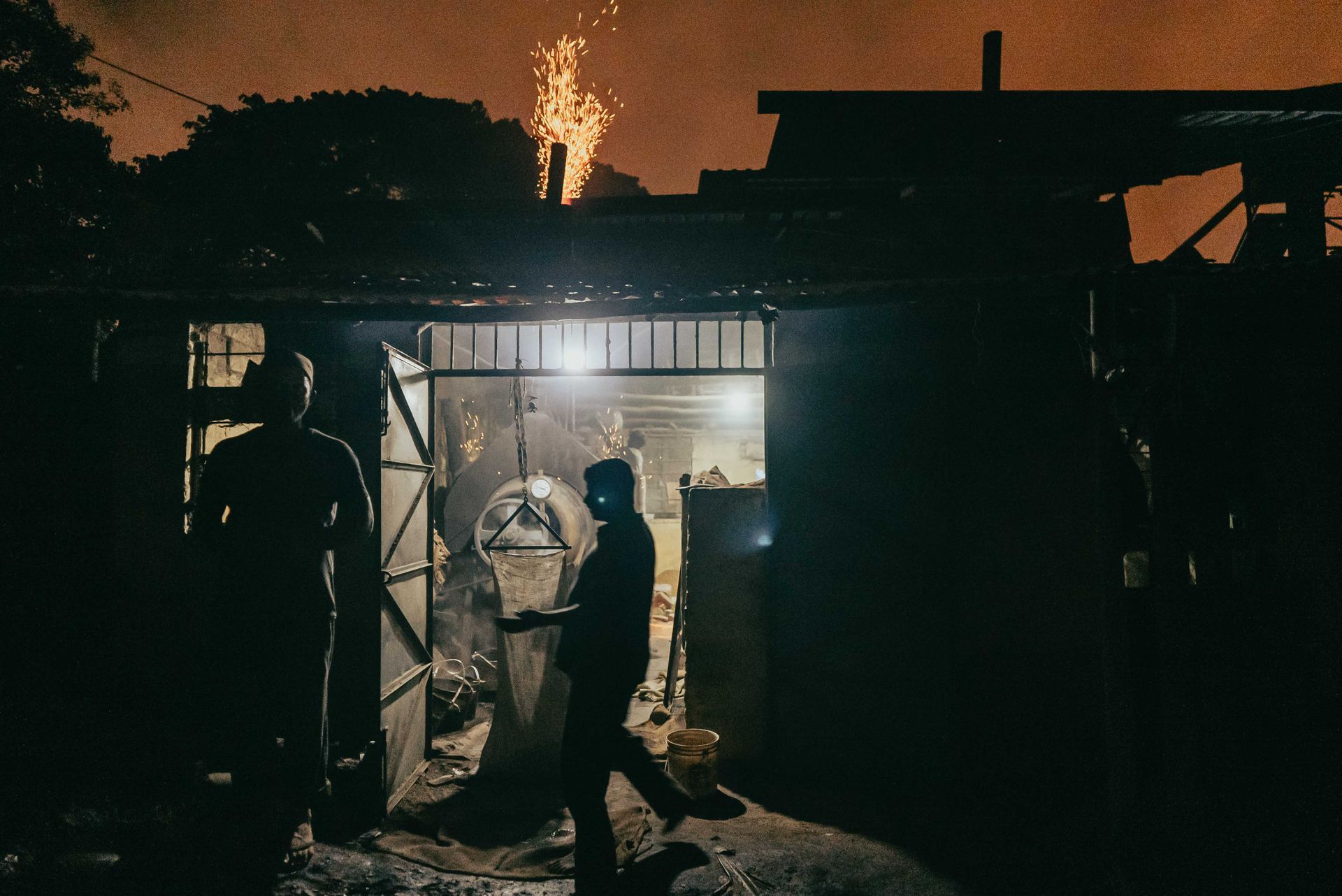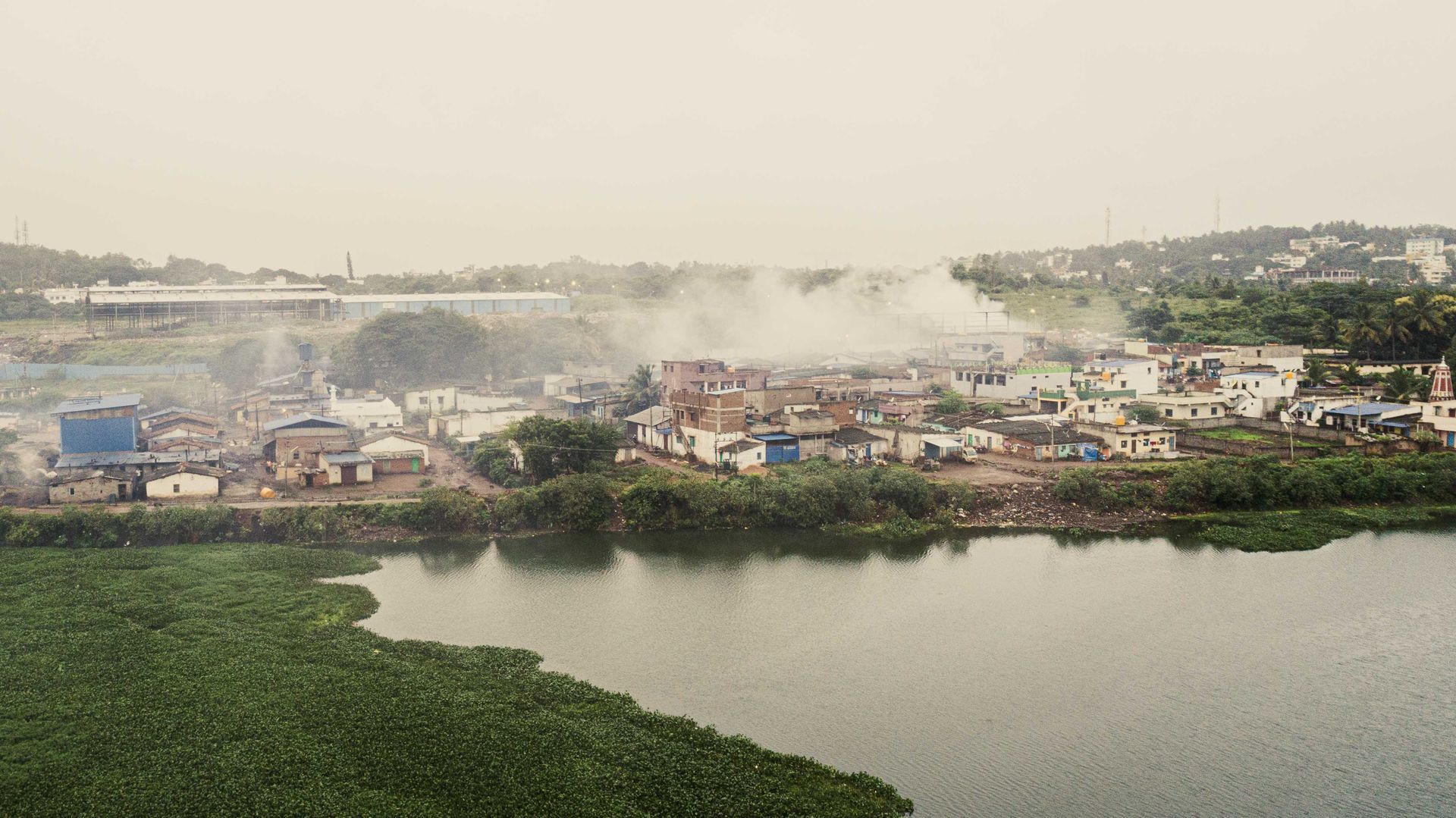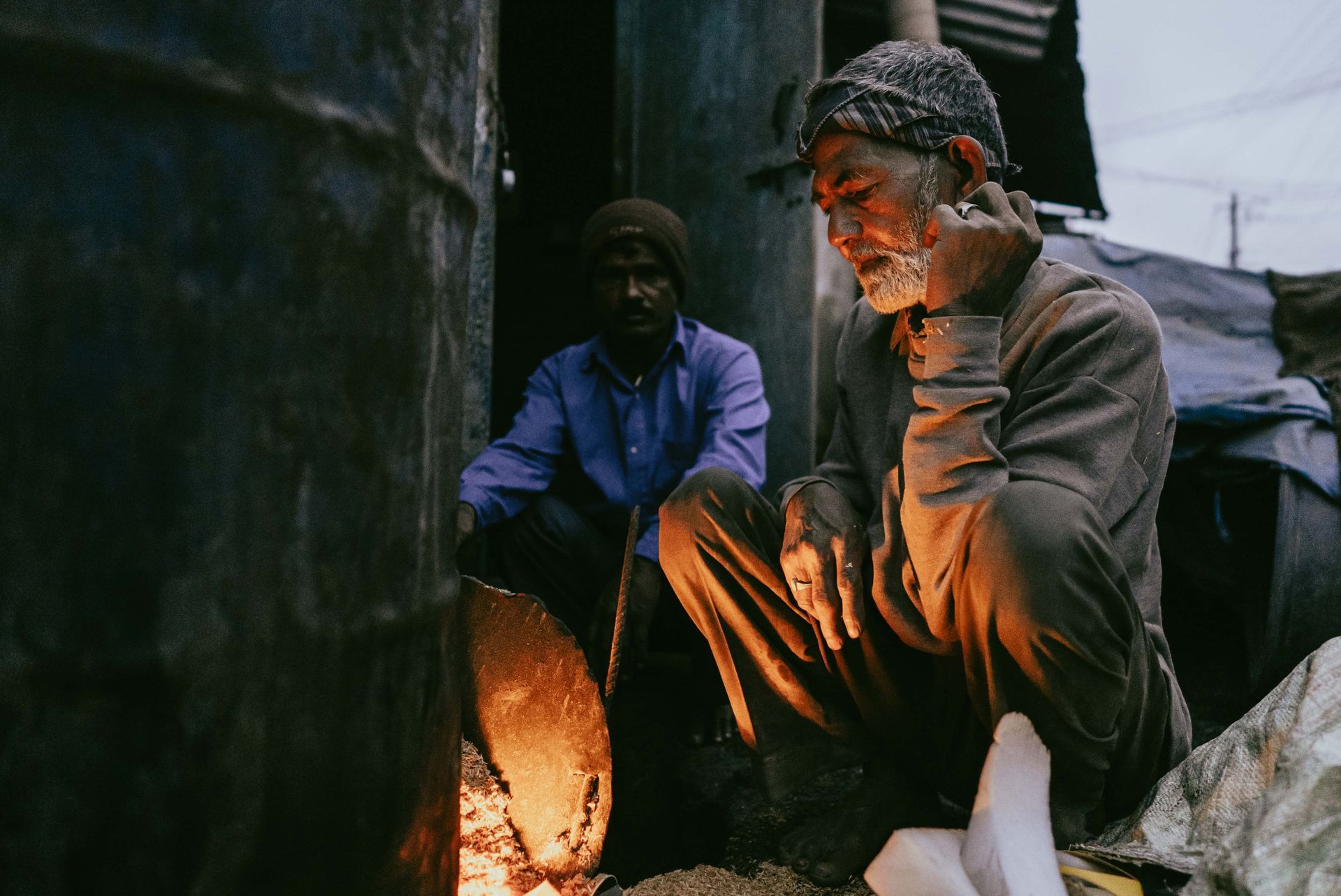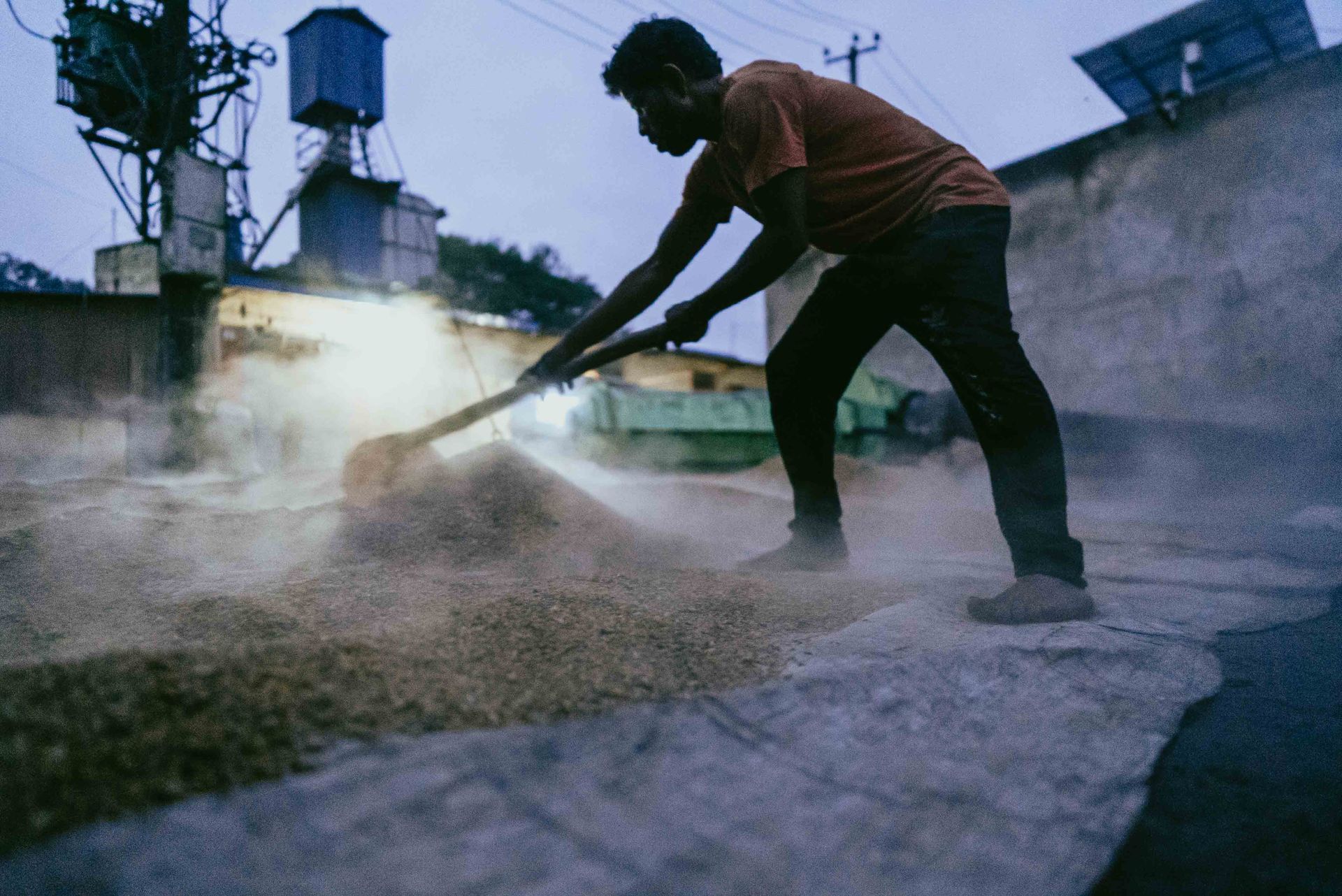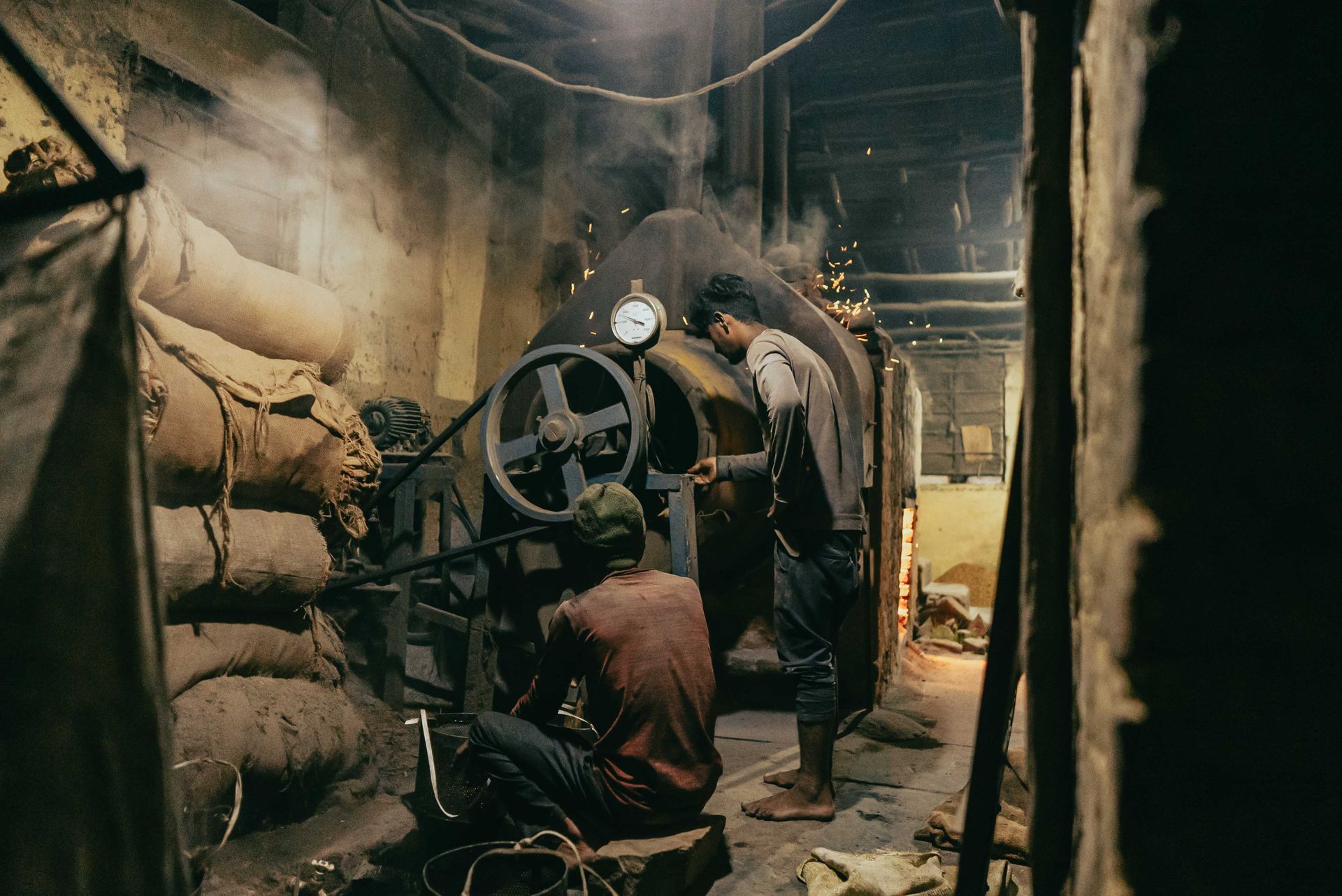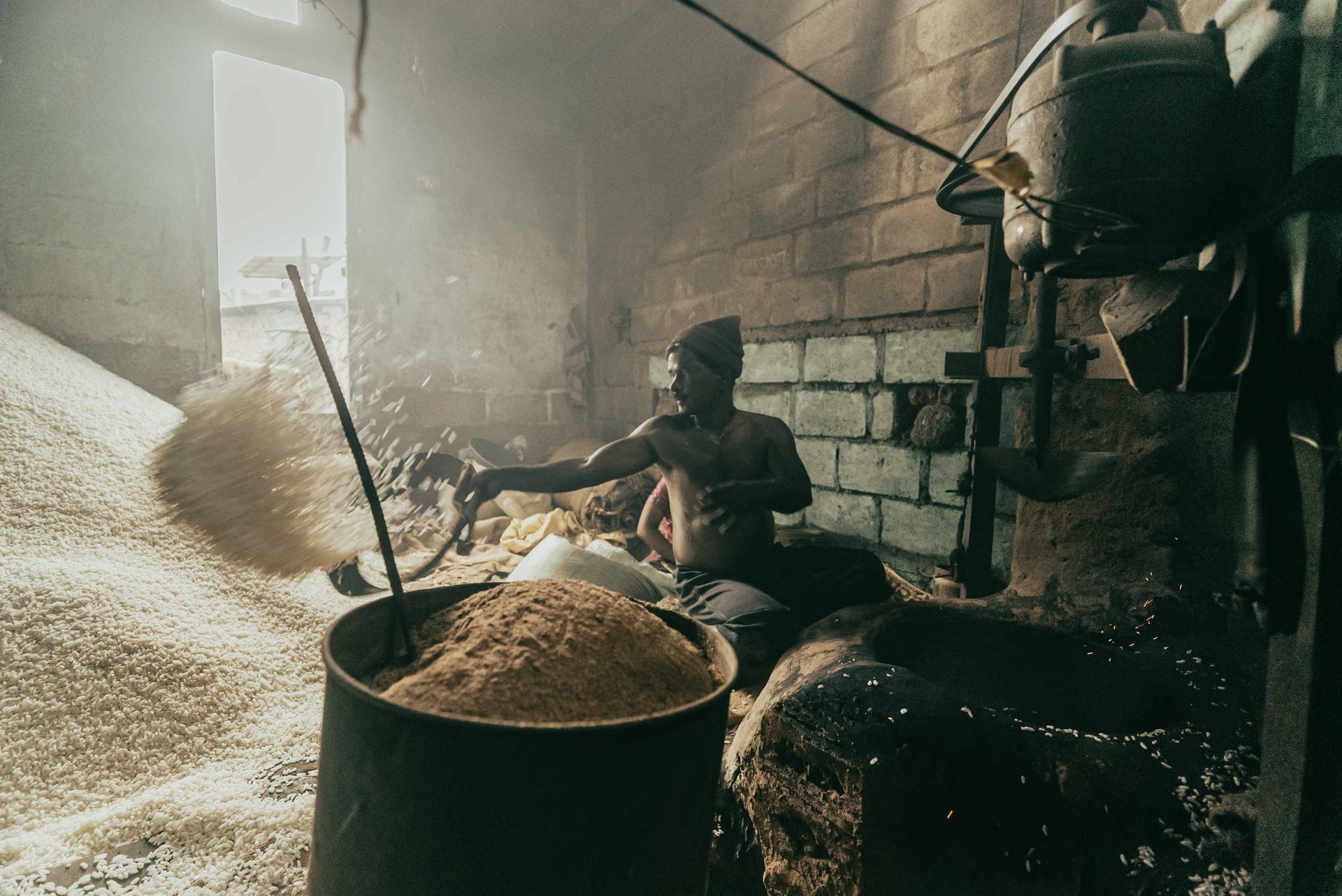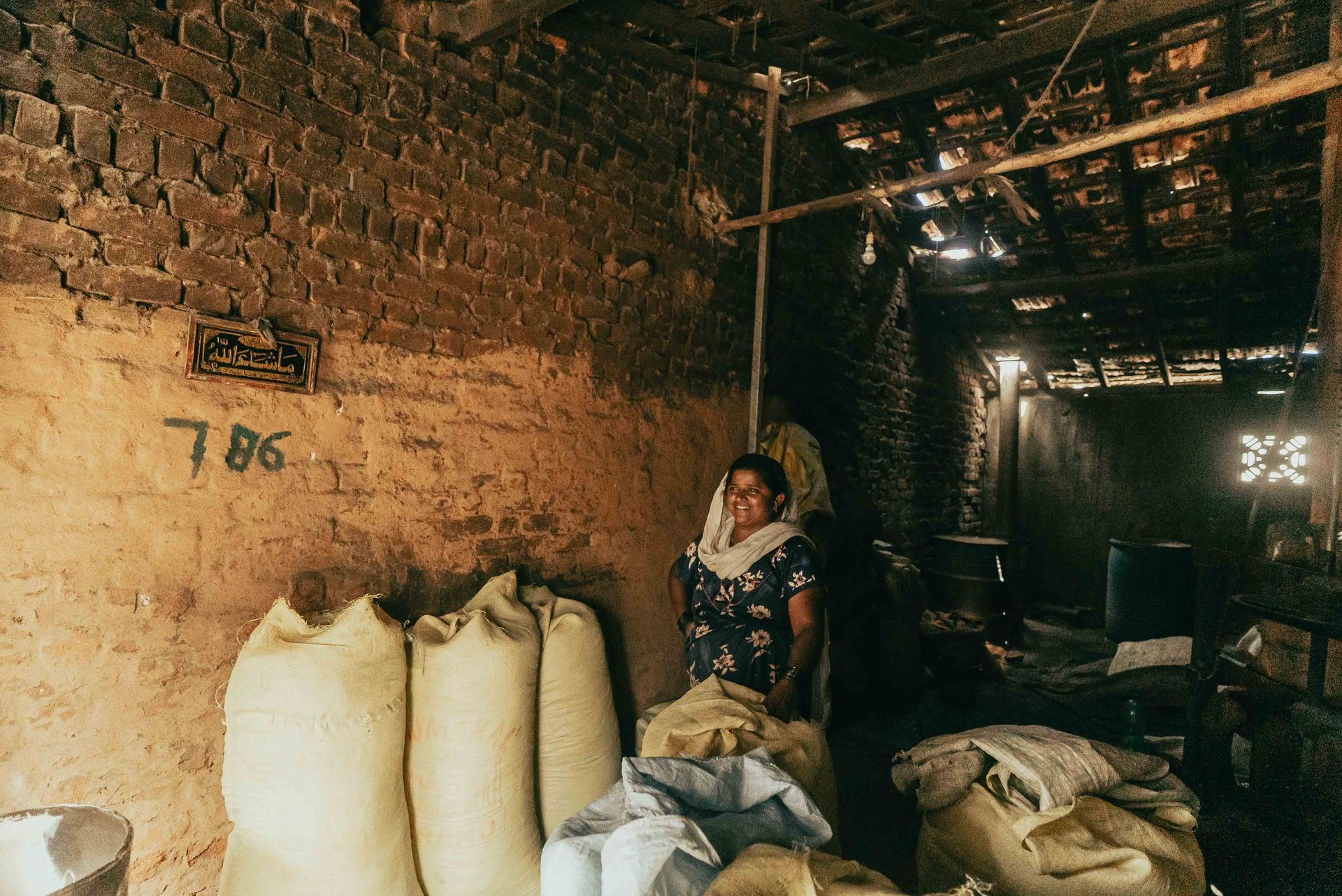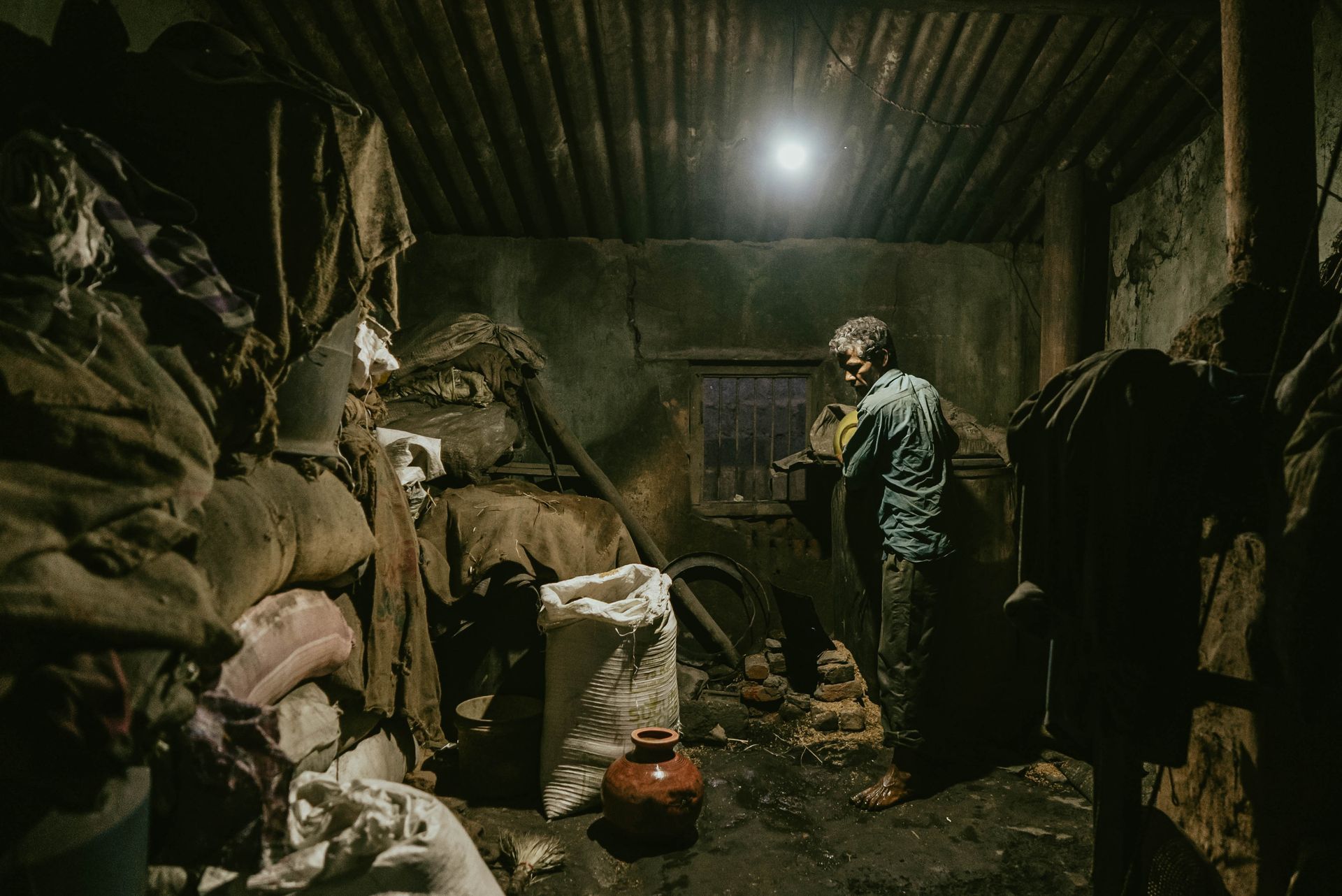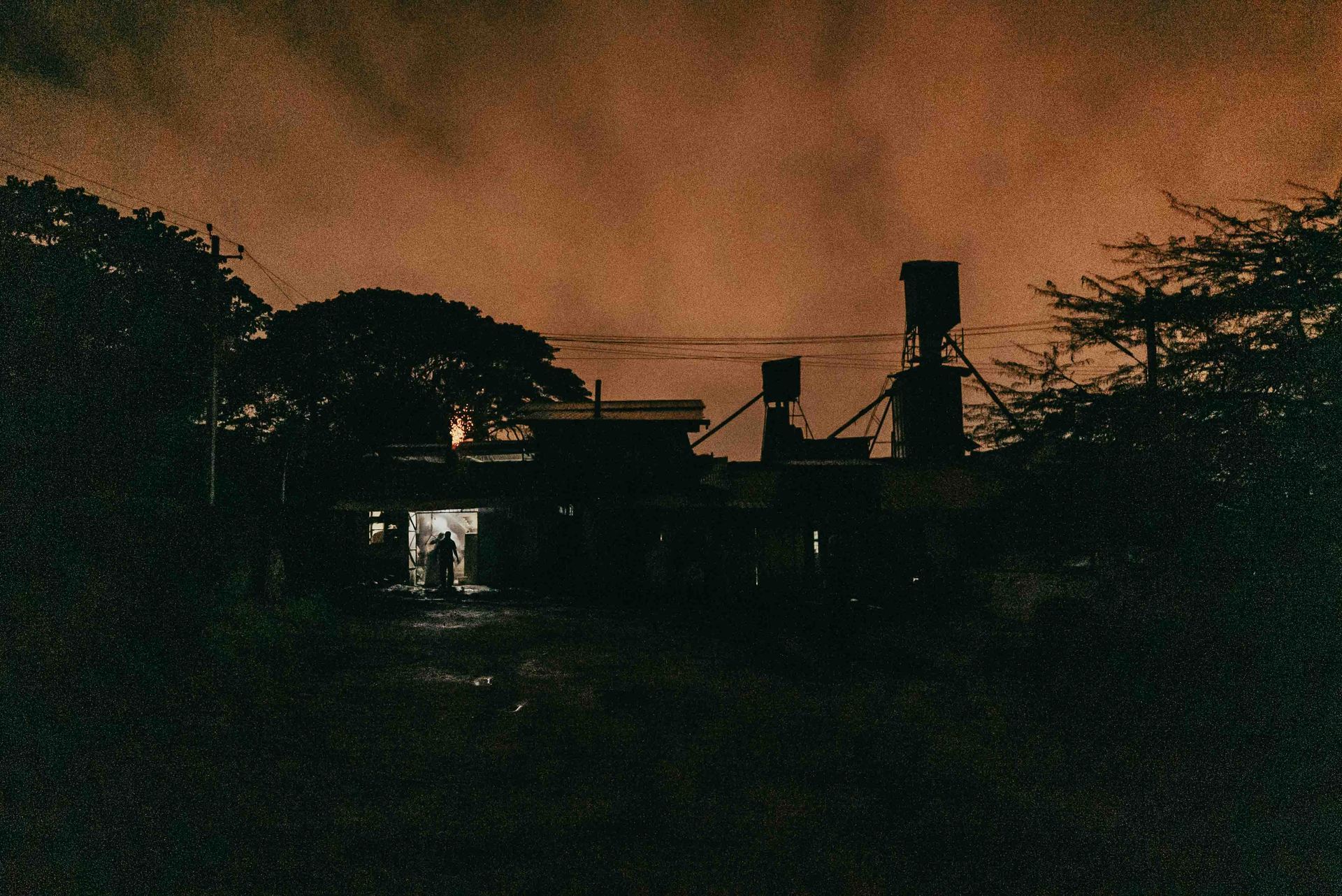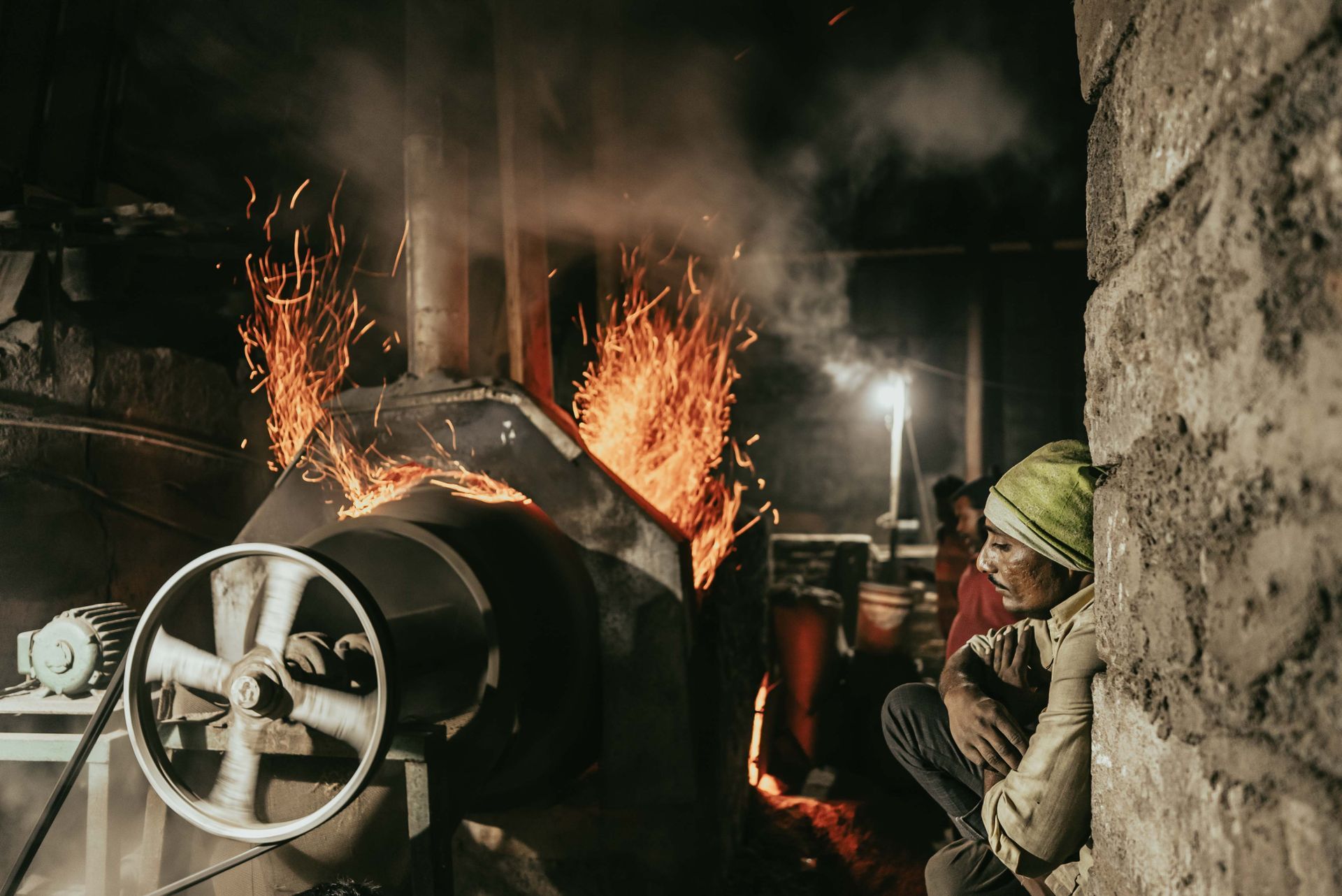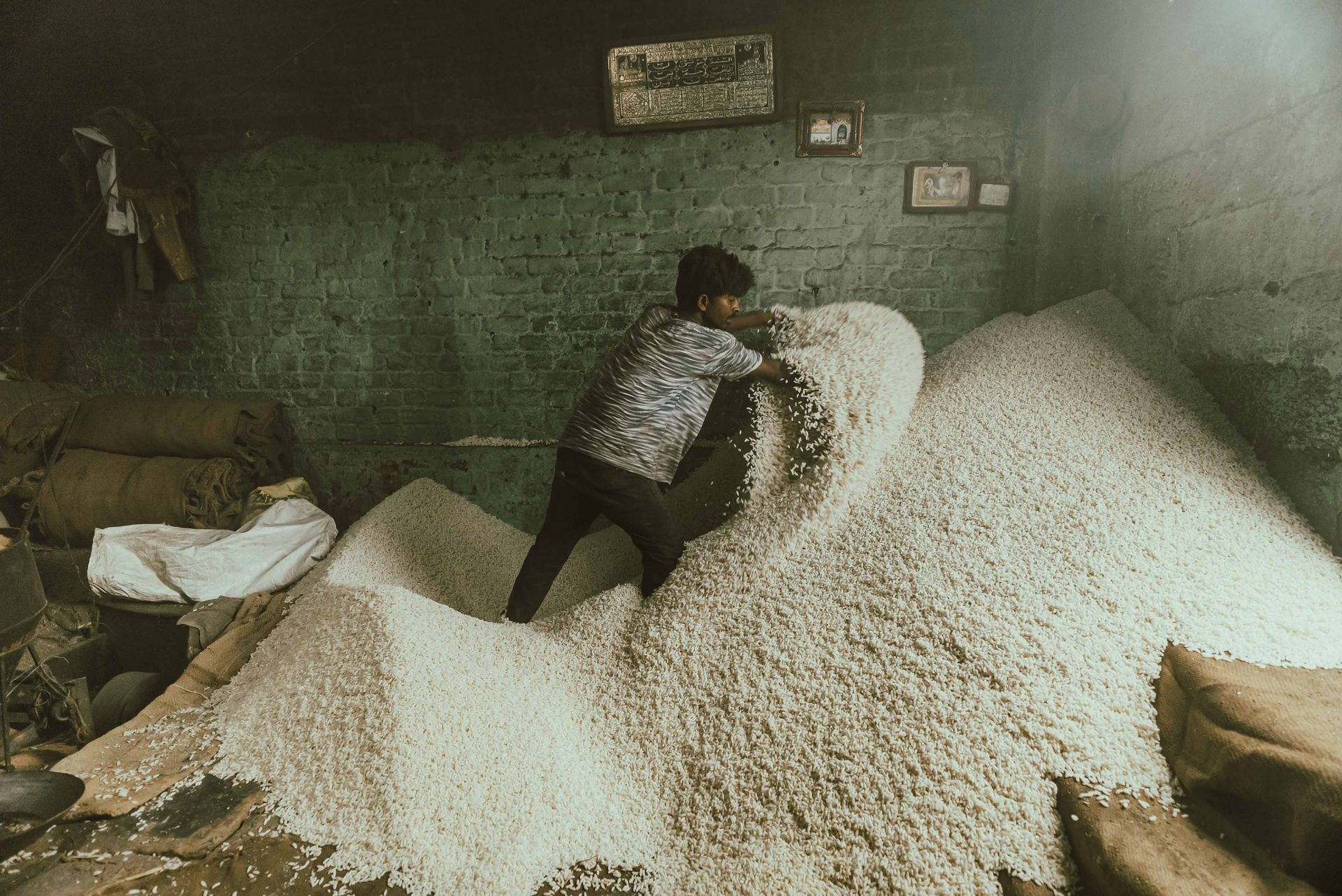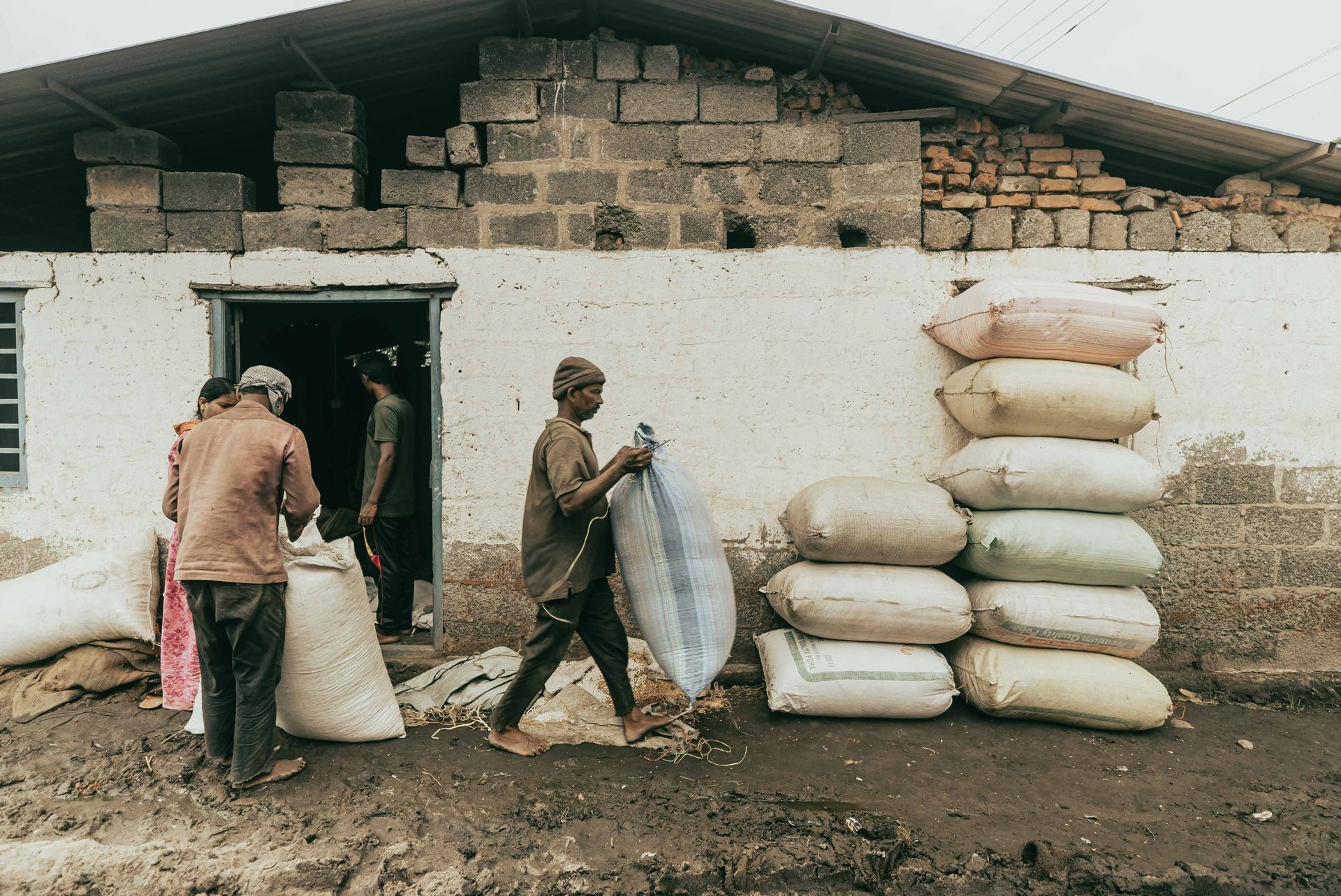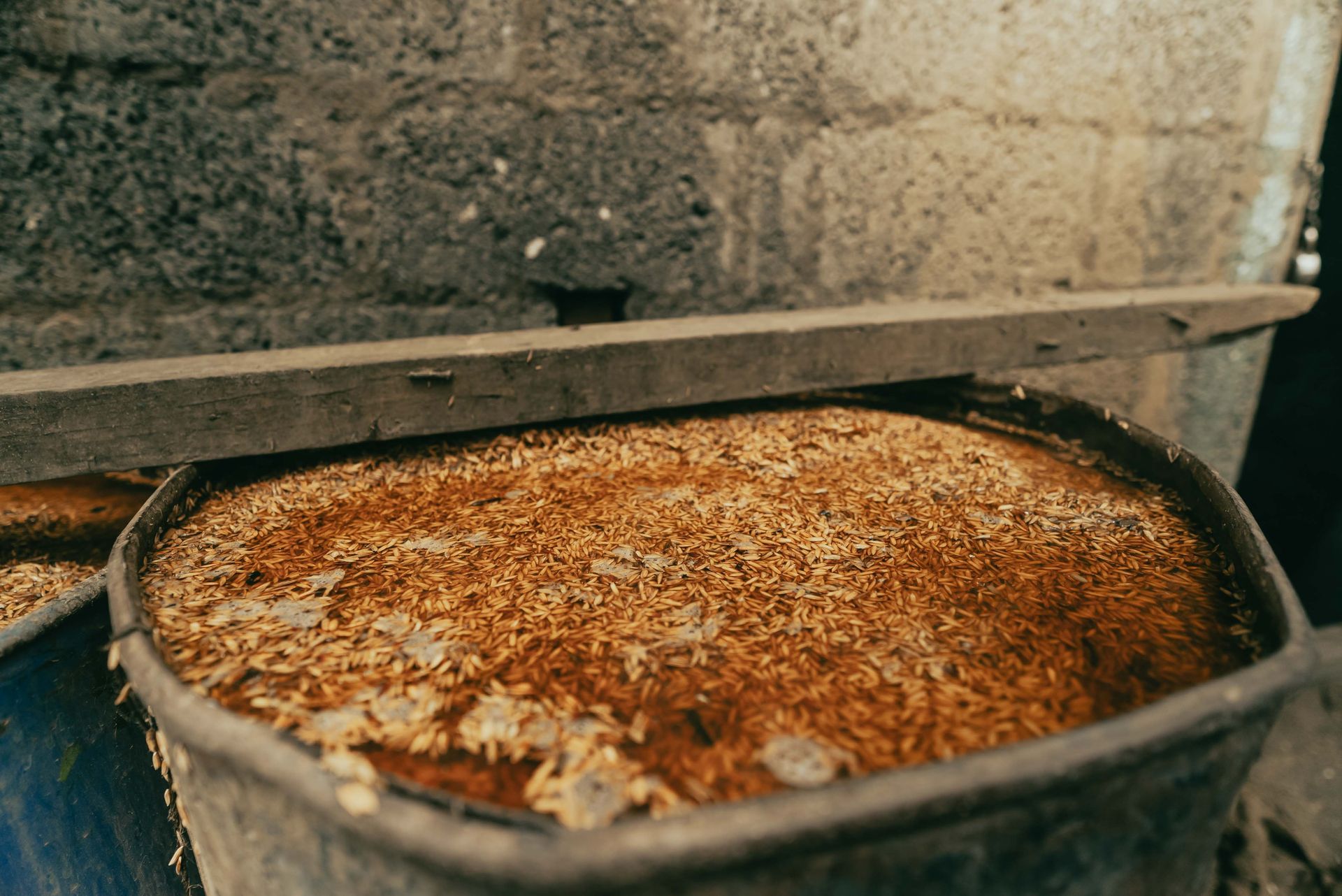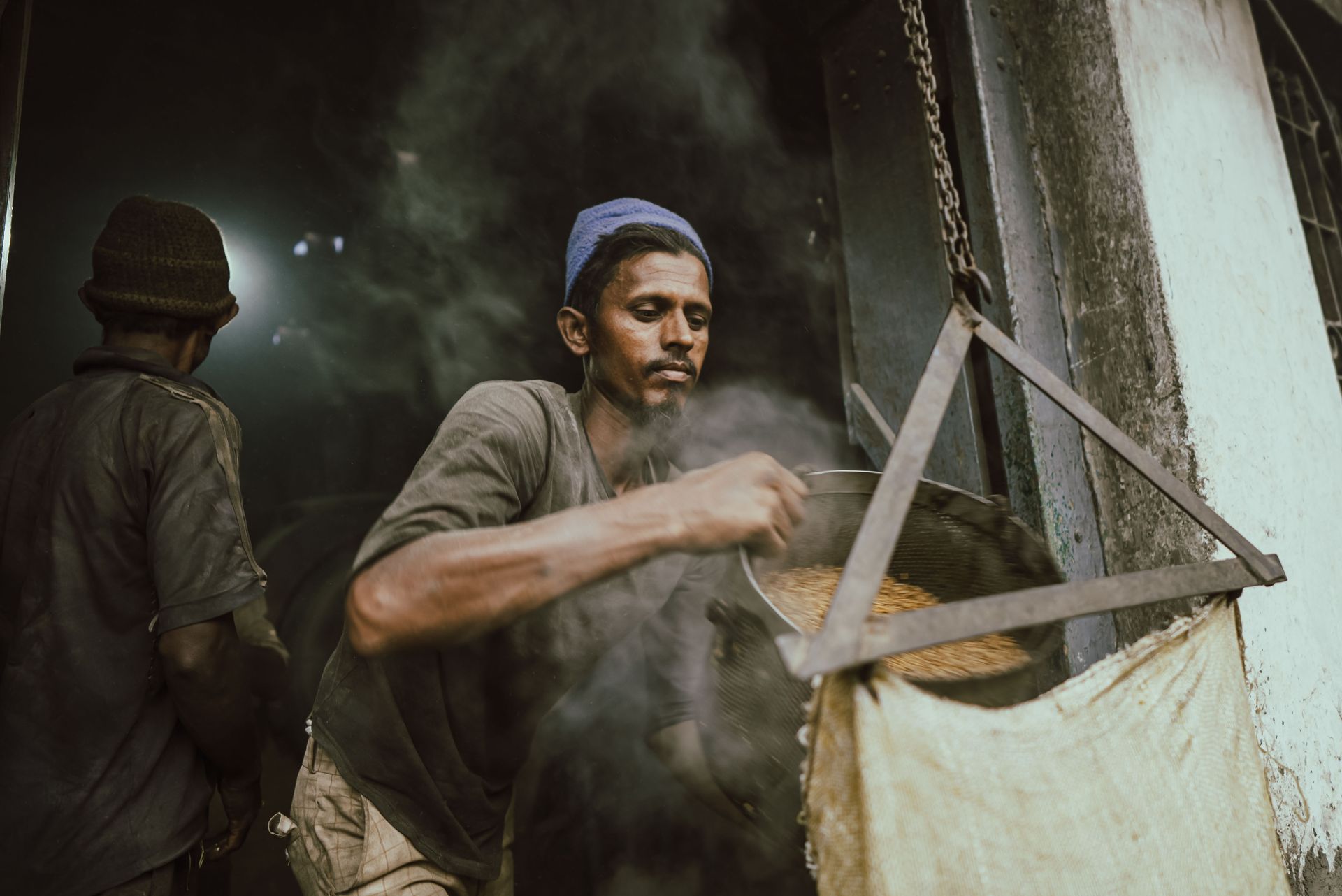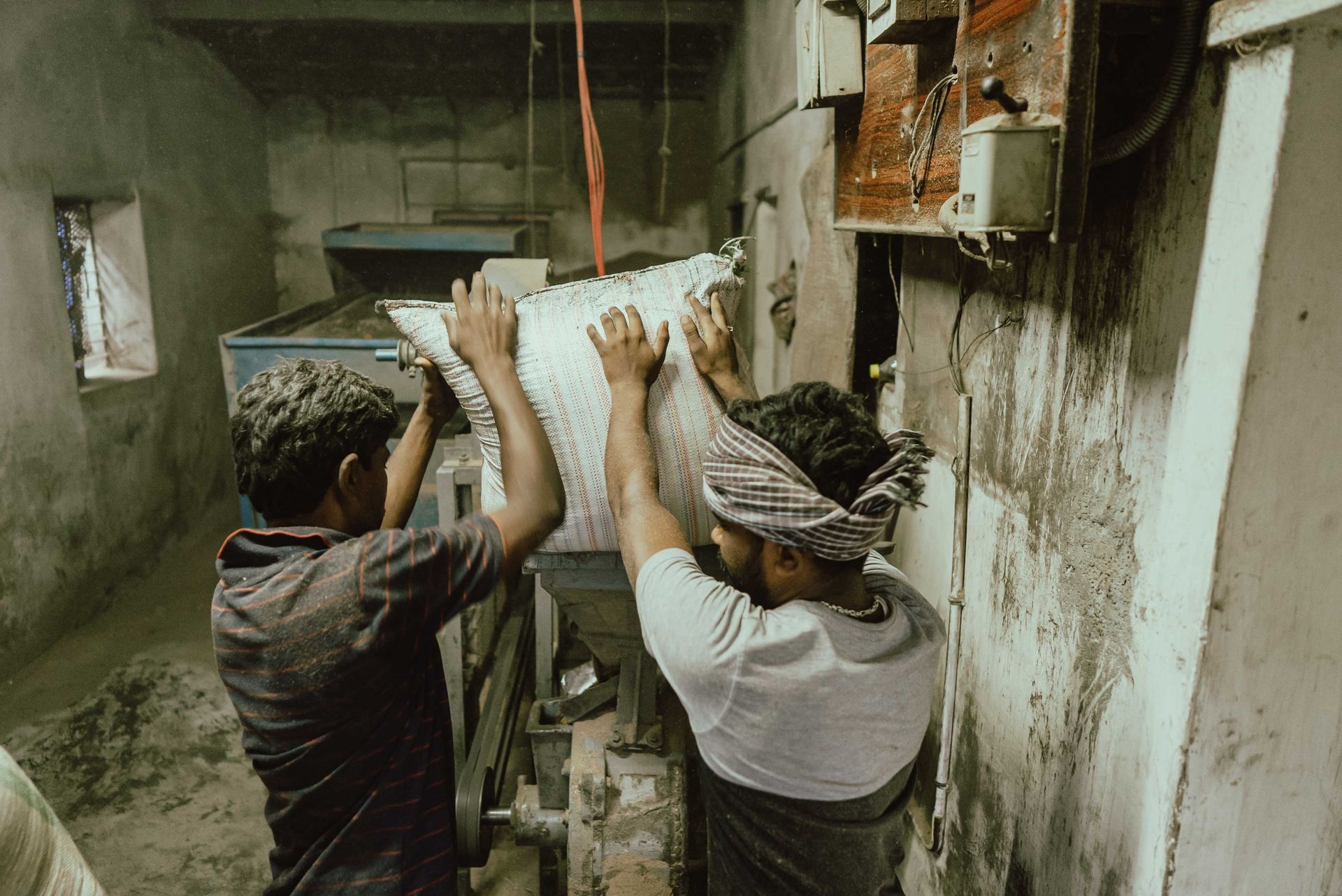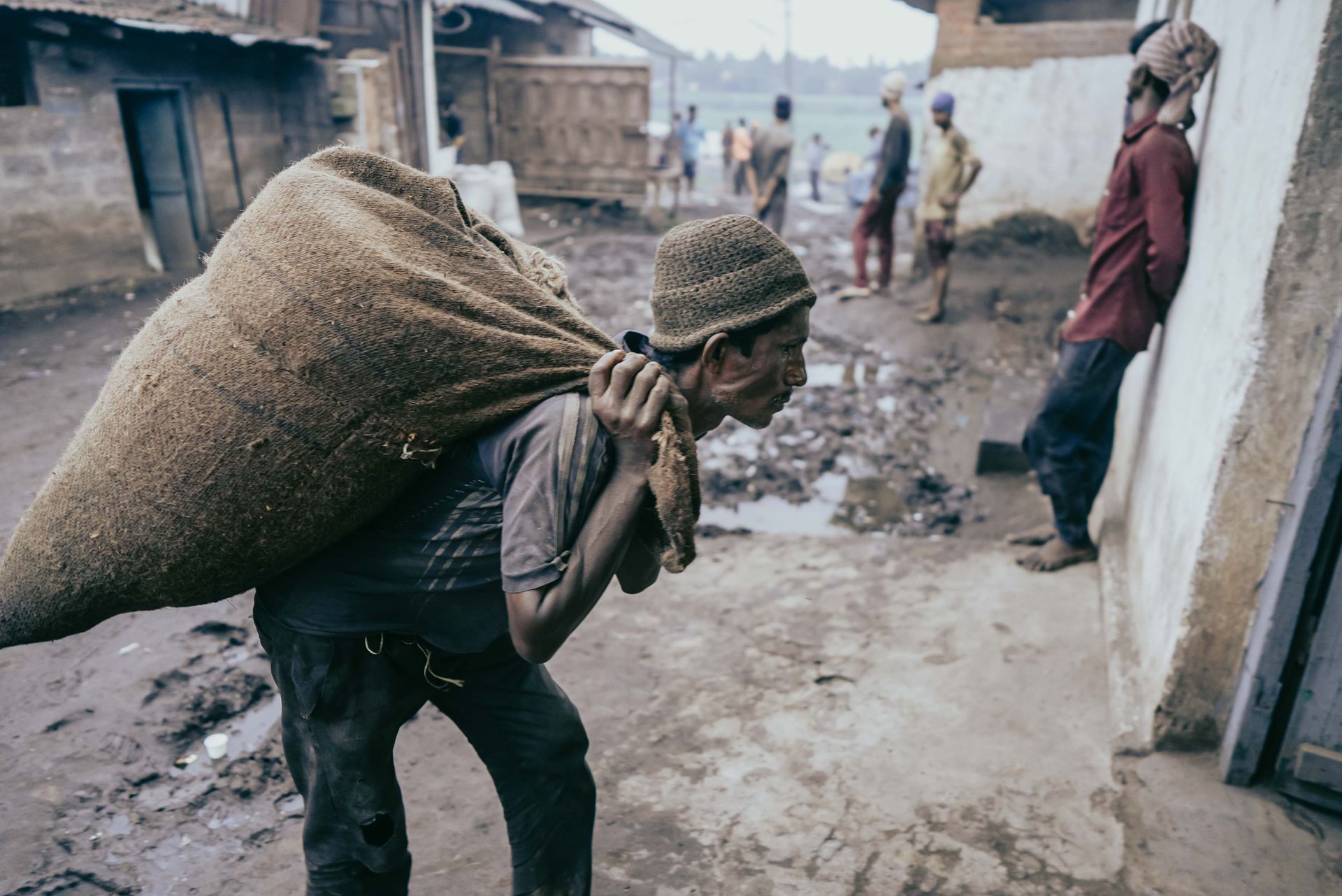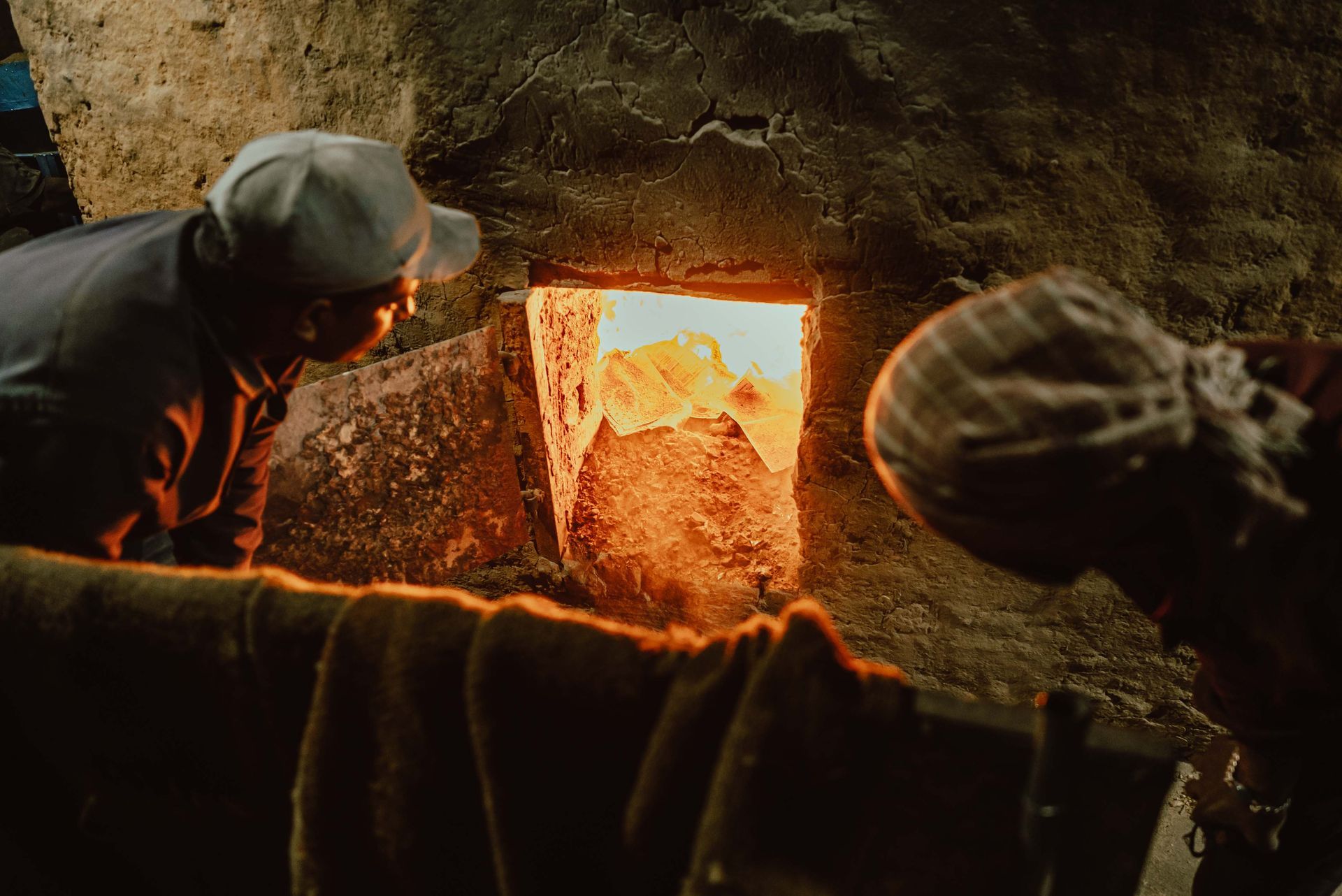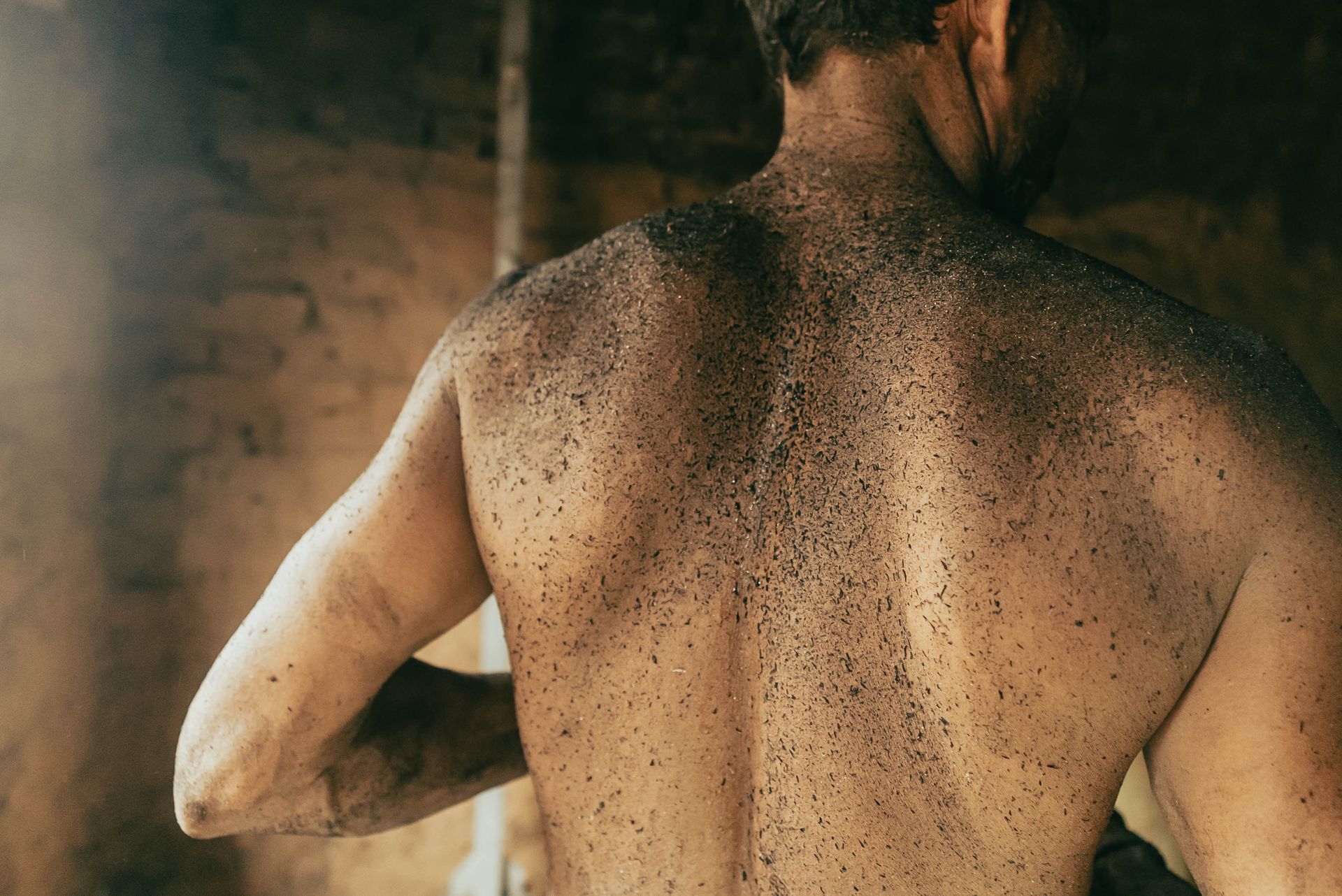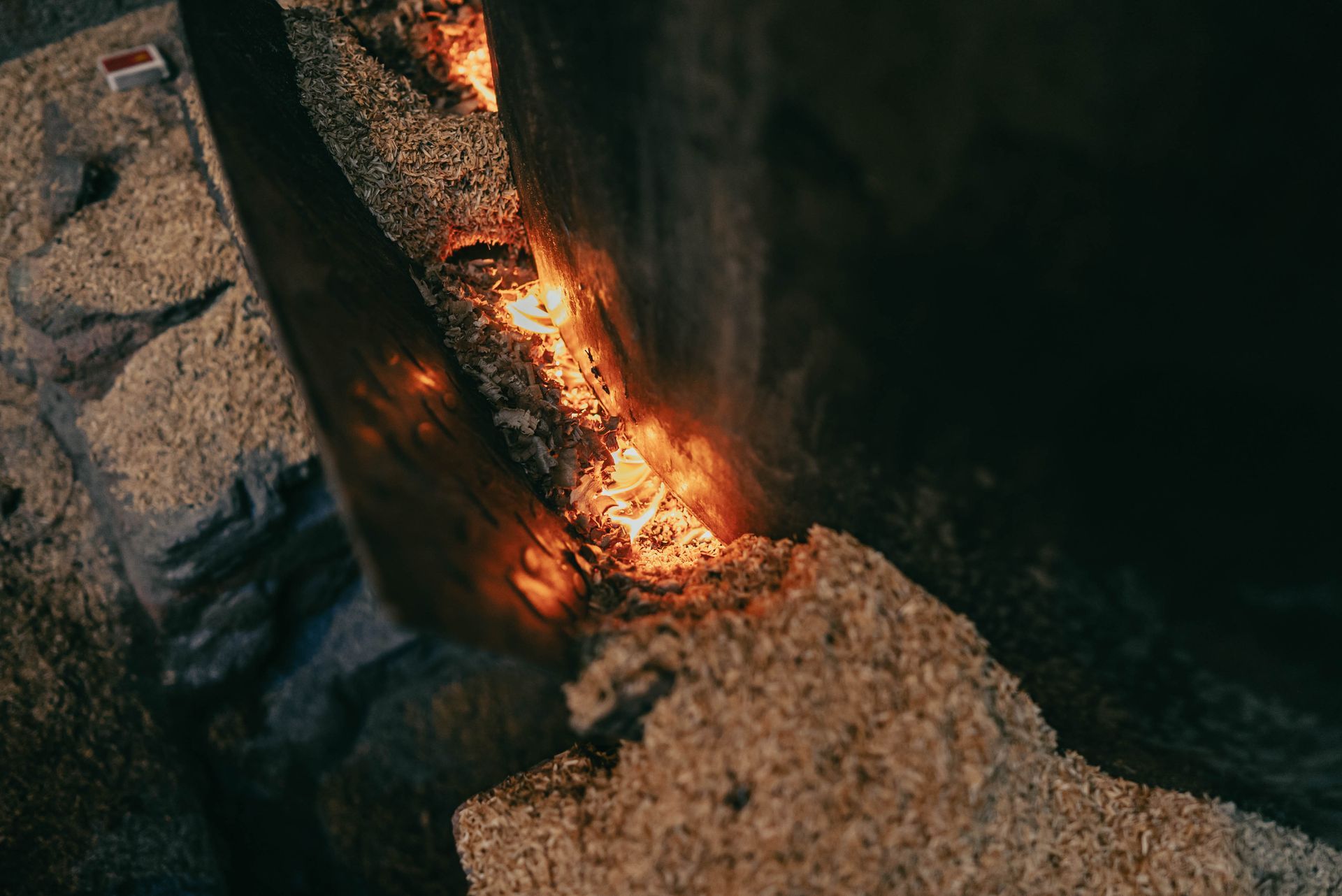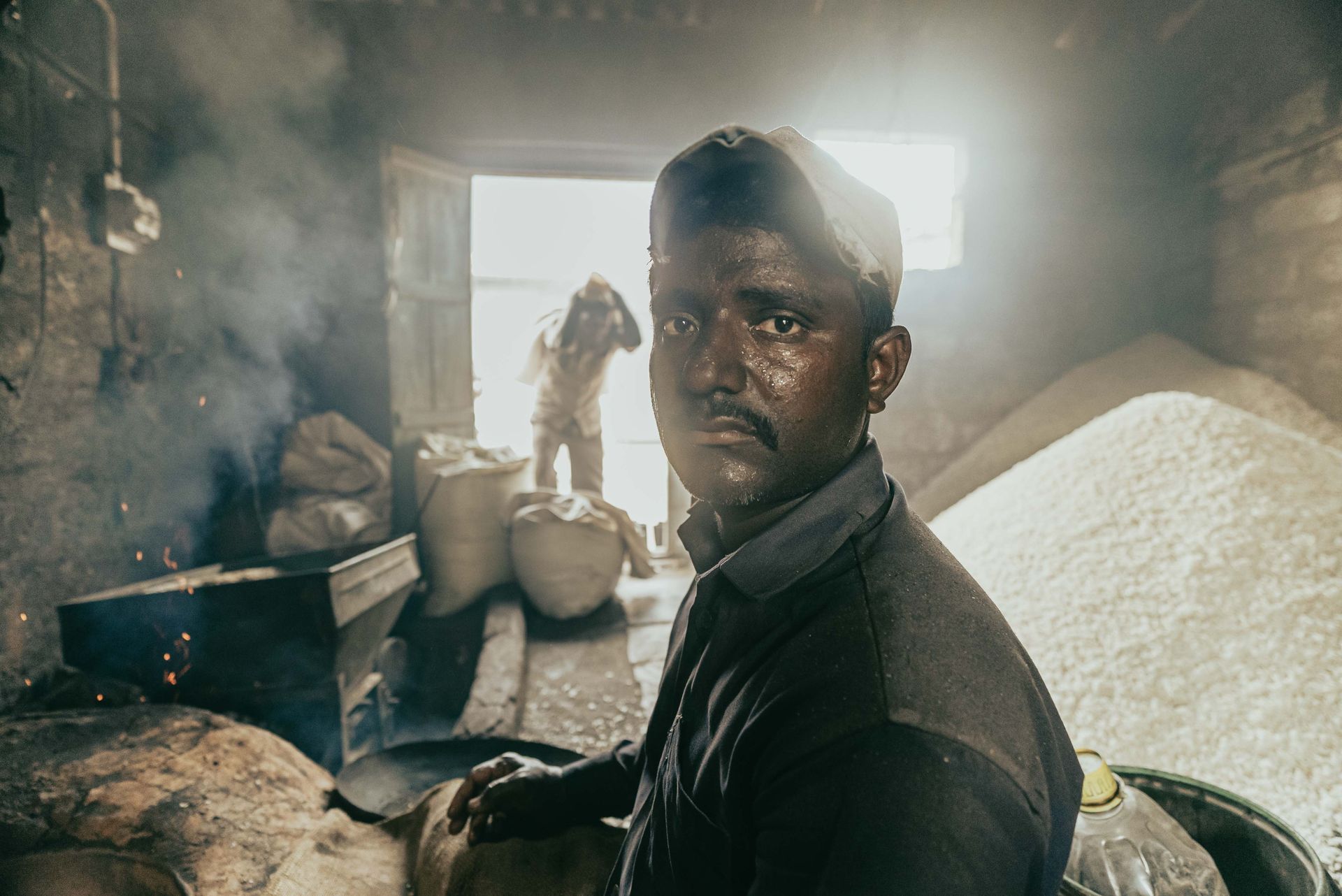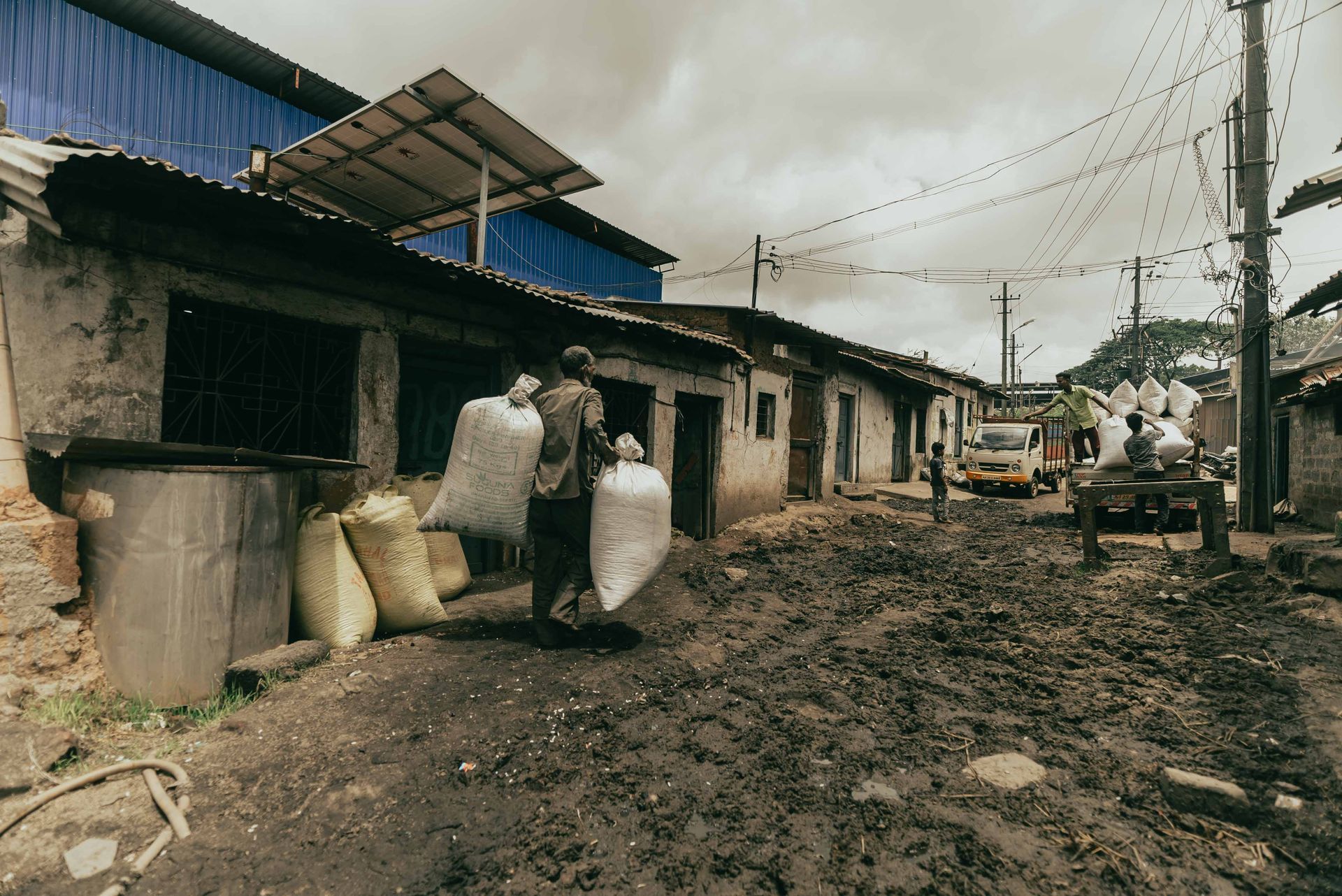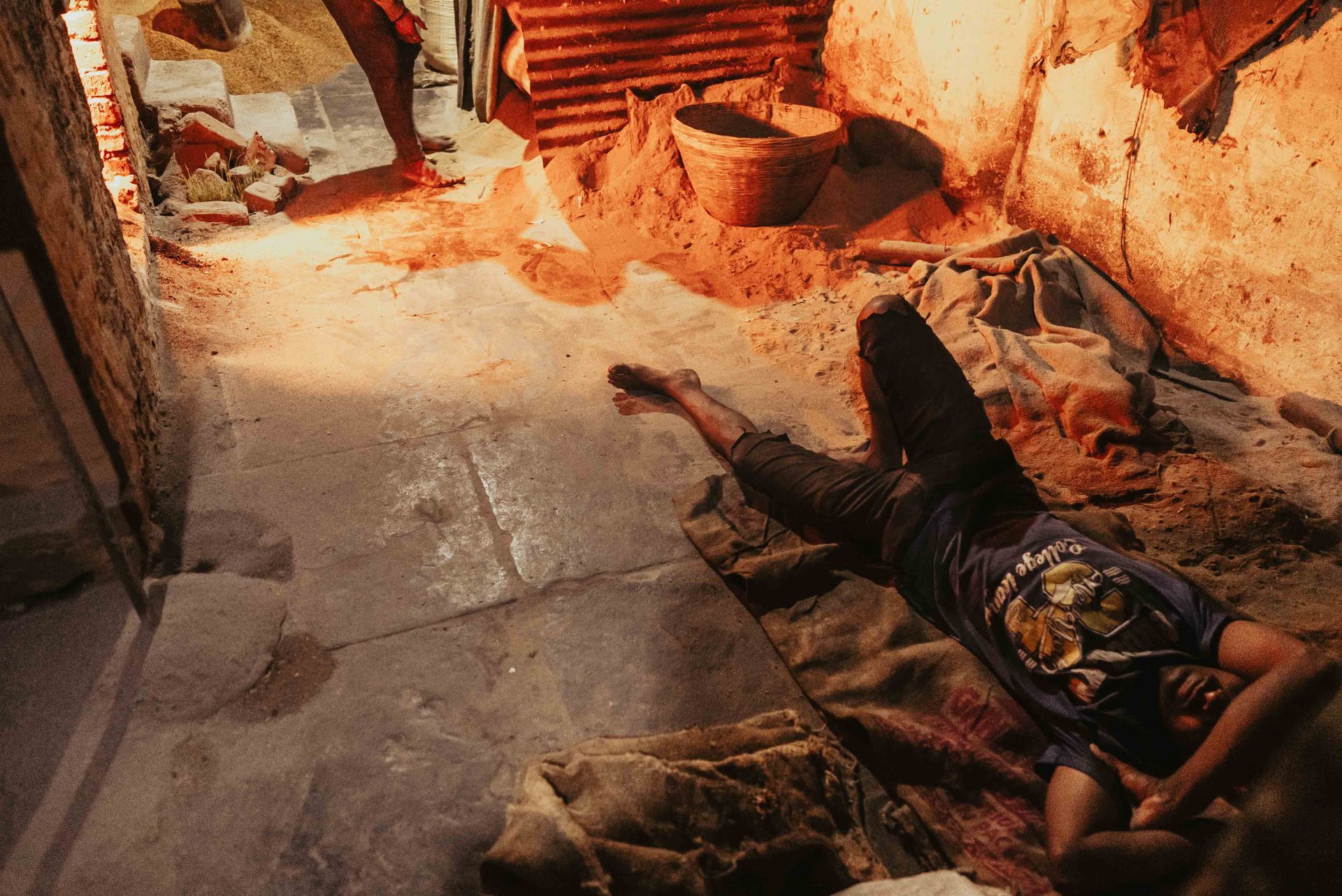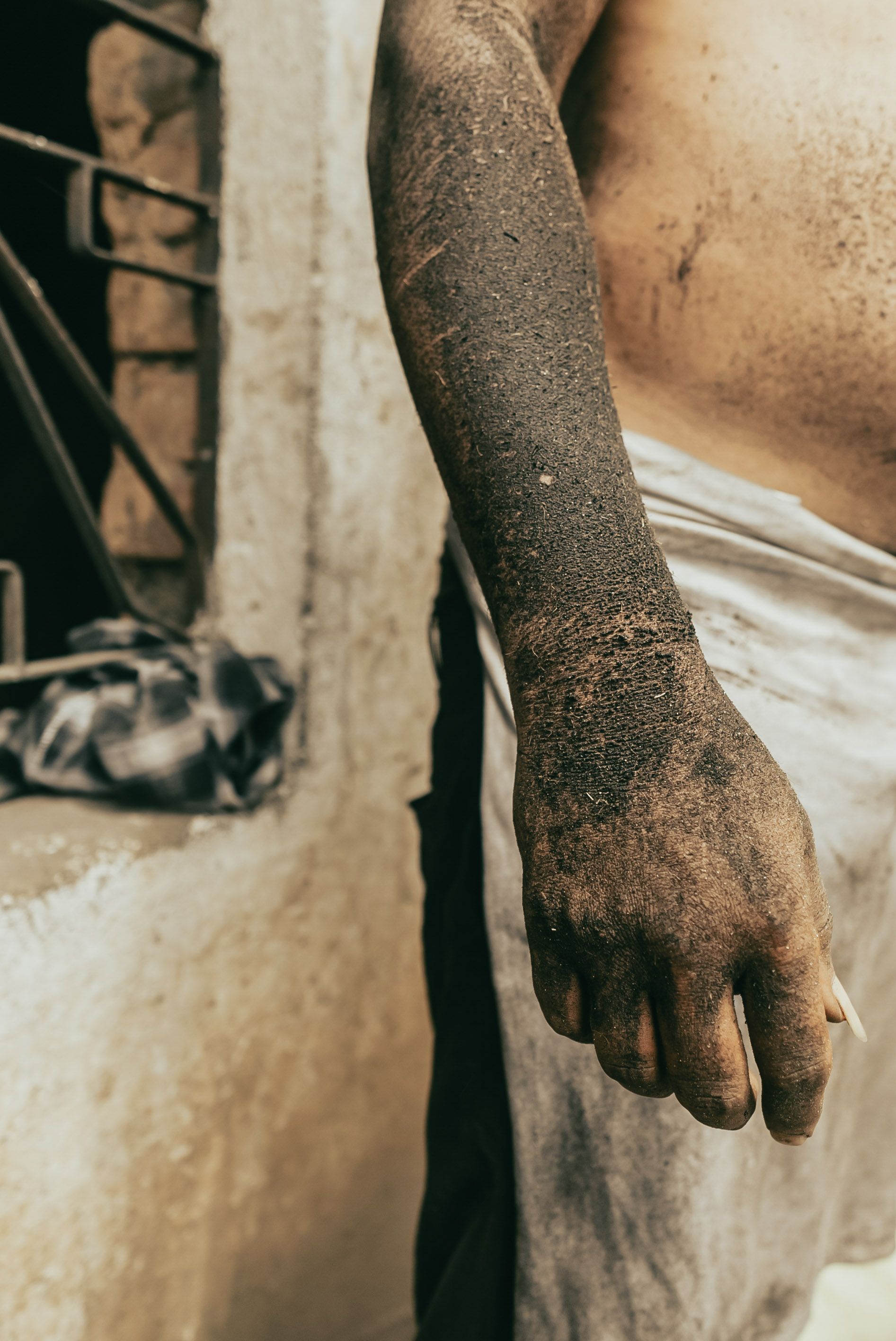Client
Selco Foundation
Work at 45°C -
Churmuri
(puffed rice) Makers
Selco Foundation
Climate change affects everyone - especially the economically weaker sections that have the least means to mitigate its impacts. The consequences can be observed in micro businesses like the food and craft industries. Climatic extremities coupled with unplanned workspaces result in low productivity and poor quality of life for the entrepreneurs involved. One such industry is churmuri or puffed rice making (an ingredient used to make a common snack at home or at eateries) - the first of a three part docu-series capturing instances of heat stress in workplaces.
Category
Documentary Film
Client
Selco Foundation
Work at 45°C -
Churmuri
(puffed rice) Makers
Selco Foundation
Climate change affects everyone - especially the economically weaker sections that have the least means to mitigate its impacts. The consequences can be observed in micro businesses like the food and craft industries. Climatic extremities coupled with unplanned workspaces result in low productivity and poor quality of life for the entrepreneurs involved. One such industry is churmuri or puffed rice making (an ingredient used to make a common snack at home or at eateries) - the first of a three part docu-series capturing instances of heat stress in workplaces.
Category
Documentary Film
An ode to the human machine,
the perceptive grain of rice,
the oblivious consumer,
and the ceaseless fire.
The churmuti bhatti at Kollikere, Dharwad is a colony of 80 workshops situated between a landfill and a cremation ground. This land was allotted to entrepreneurs who were once situated in the center of the city - asked to move to keep the heat and smoke generating industry away from the public. The colony is run by both, self employed entrepreneurs and skilled workers, in workshops that are primarily hand driven, while a few are mechanized.
Churmuri making is a four step process - boiling, cooling, milling and roasting of paddy - manual work involving intensely high temperatures. As per the observations made by the Selco team, indoor temperatures during work hours are at least 5℃ higher as compared to outdoor temperatures.
Often the enclosures are made using easily available and quick-to-install materials like tin sheets and brick walls.
The resultant workspaces are cramped and devoid of natural light or ventilation. Indoor visibility is low with just a bulb or two fixed in ad hoc positions. The same space is utilized for multiple purposes including manufacture and storage.
The churmuri makers start work as early as 2.00 am everyday, before the outdoor heat becomes unbearable (especially during summers), and since some of the machines are shared between multiple units. The high temperatures required for churmuri making are achieved by burning rice husk and whatever else they are able to procure easily. The smoke generated is quite detrimental and has ill effects on their health. Chimneys, if present, are either inadequate or located improperly.
They complete their work by 1.00 pm and hand over the sacks of churmuri to middlemen. Every now and then, they lend some quantities of churmuri to help each other complete the day’s quota. While the manually operated units can produce 20 to 30 sacks of churmuri a day, the machine driven ones can manufacture up to 250. The workers toil for 8 to 10 hours on empty stomach, before getting back home for a soothing bath, a hearty meal and ample rest.
The work is perilous to body posture, demanding long hours in awkward positions (squatting, bending), and lugging of heavy sacks filled with boiling rice. Since the work hours are odd and there is strenuous physical work involved, the workers are visibly drained by the end of the day, bodies covered in husk and soot, eyes puffy from the smoke, and joints stiff from the drudgery. Most of them suffer constant body aches and chest congestion, frequently requiring medical attention. The workers believe that they are bound to become incapacitated by the age of 50.
Outside the monotony of the literal daily grind, market visits and household chores occupy their time. Recreational activities include going out with the family, and attending communal functions and festivities. Short and long term goals include education of children, arrangement of wedding(s) and purchase/ construction of a permanent house, which are facilitated through loans - that keep the families in debt for years - in many cases driving the next generation of young adults into continuing the same job to contribute to the growing expenses.
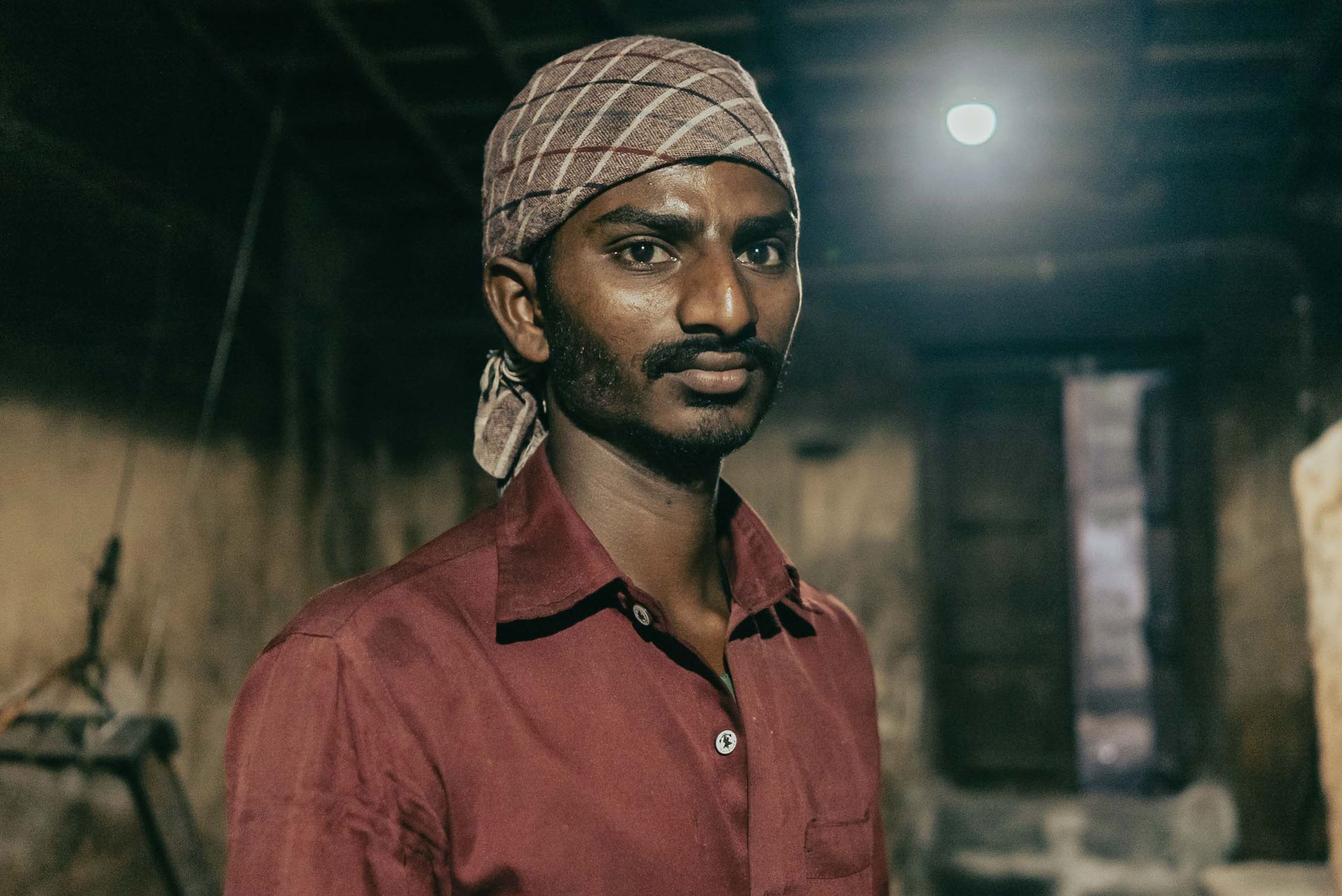
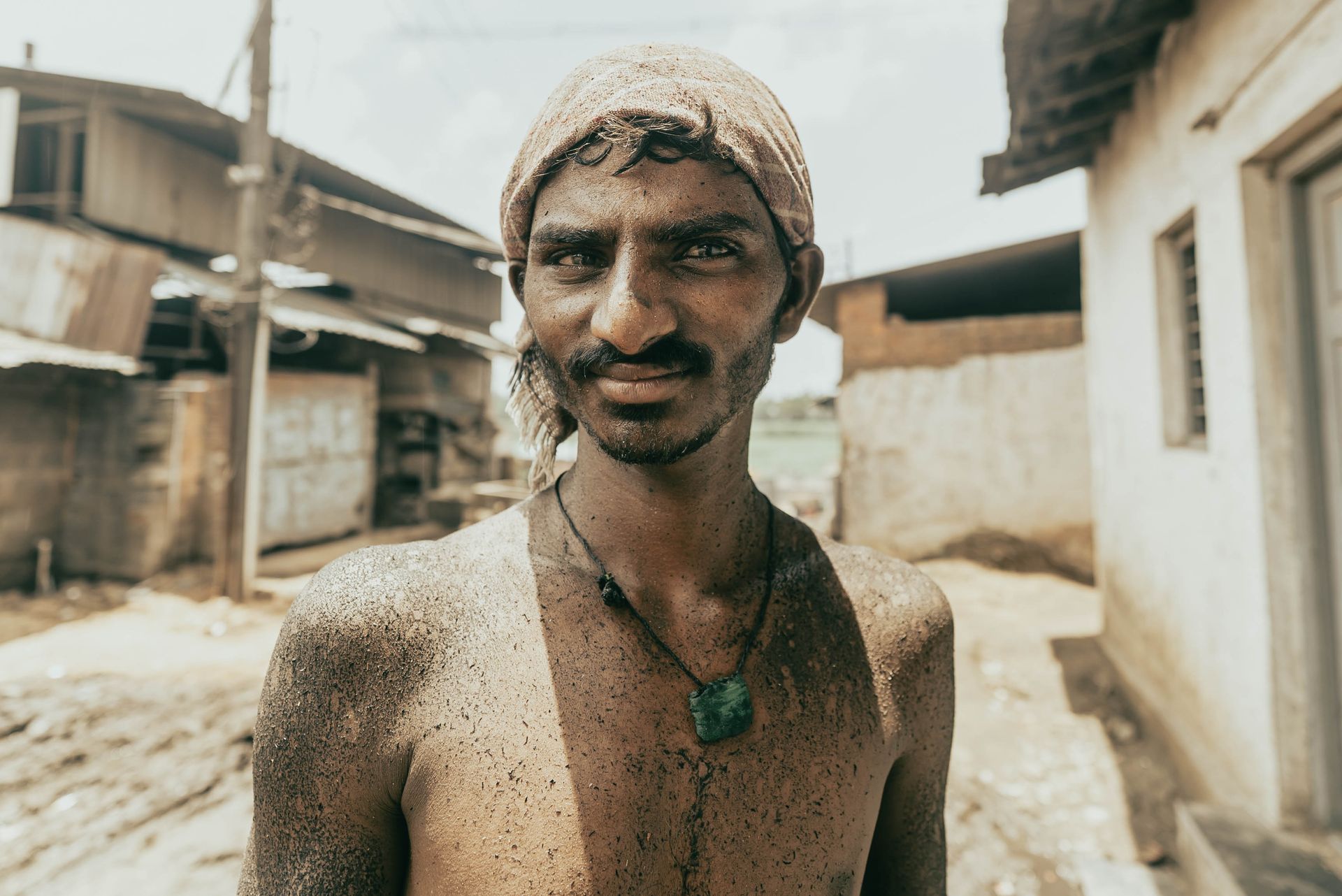
The production of this episode took place in the first week of August in 2021, at the onset of rains. While summers aggravate the discomfort involved in the work, monsoons are equally unfavorable for the workers. The adjacent streets - which serve as extended workspaces for cooling of paddy and transportation of the churmuri - had turned mucky and uneven due to the rains. The humid air coupled with the smoke and husk, made the indoor temperature even more distressing.
The shoot equipment needed to be kept away from both - extreme heat and the rains. Both lenses were to stay clear of the smoke - the camera and the eyes! Though devices and operators were to be shielded from head to toe, it was vital to prevent alienation from the workers, while also ensuring not to be an inconvenience at their place of work. The clockwork of churmuri making raised an awareness of the hard labour that is goes into a single serving of mandakki that we ardently relish!
Produced by
Teepoi LLP
Commissioned by
Selco Foundation
Content, Direction
Karishma Rao
Cinematography
Vishwesh Shiva Prasad
Vinayak Bhat
Photography
Vandana Druva Kumar
Suchit Puri
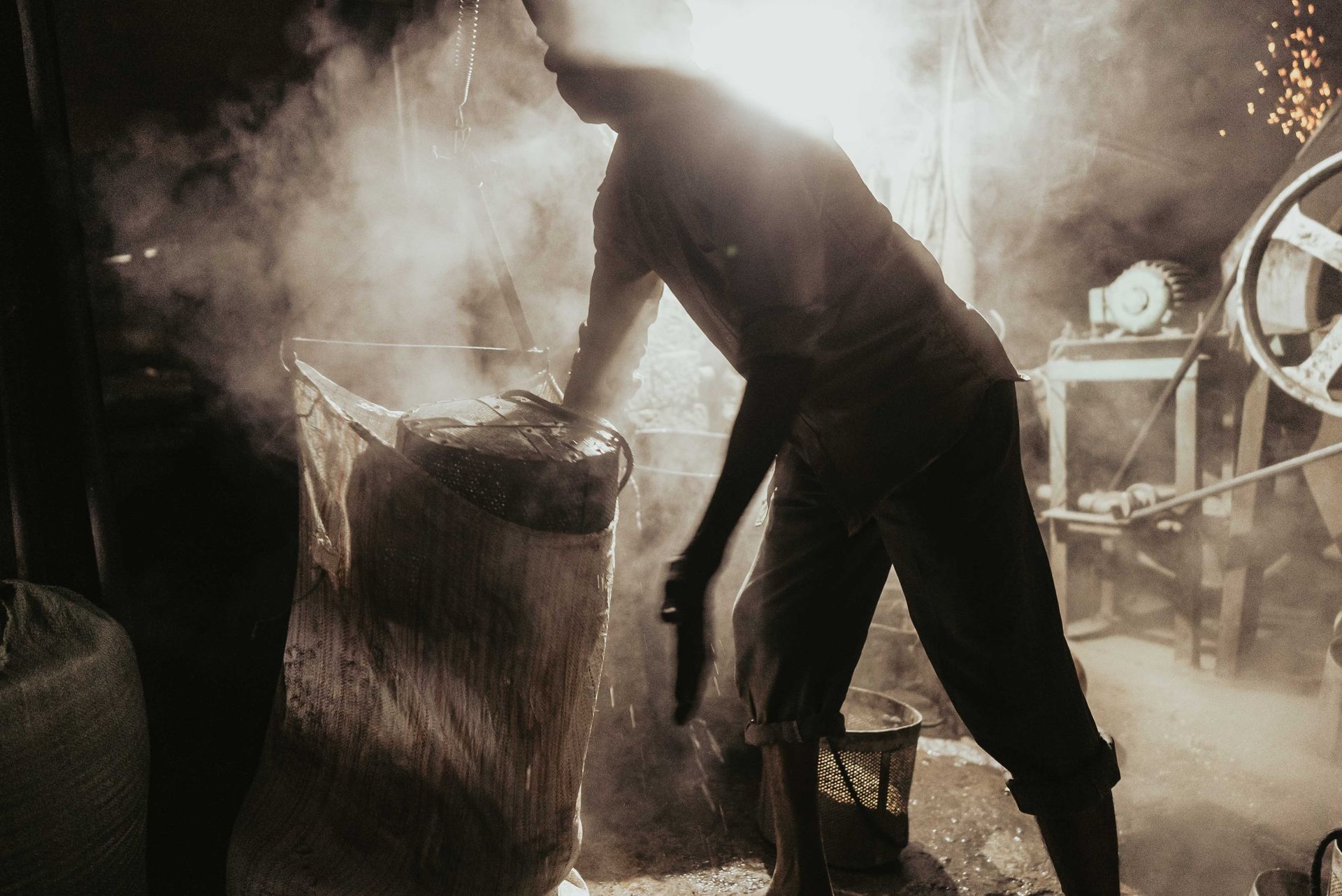
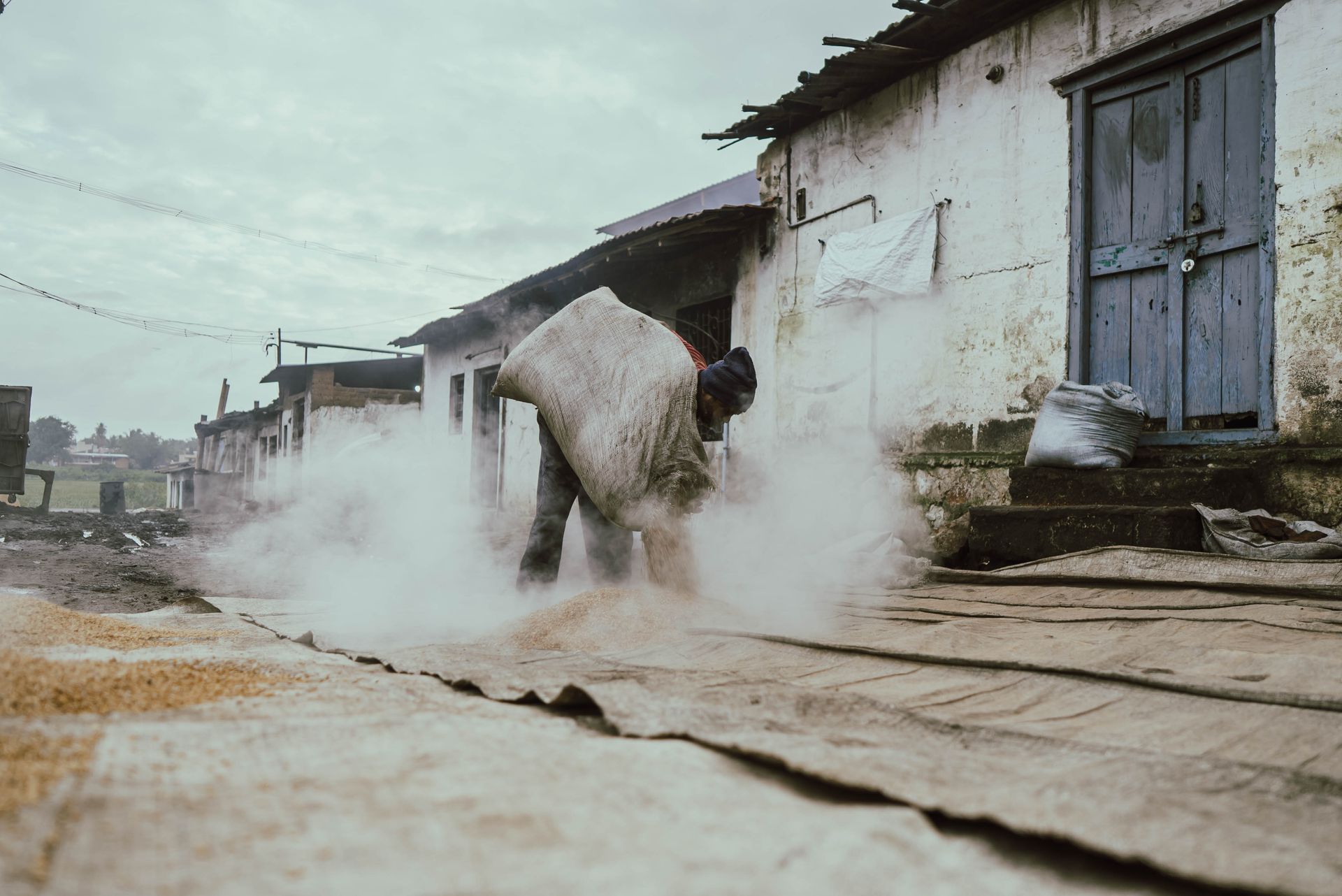
LA Journal
Selco Foundation's article as published in Landscape Architecture Journal Issue #70.
Work at 45°C - Churmuri (puffed rice) Makers
Selco Foundation
Climate change affects everyone - especially the economically weaker sections that have the least means to mitigate its impacts. The consequences can be observed in micro businesses like the food and craft industries. Climatic extremities coupled with unplanned workspaces result in low productivity and poor quality of life for the entrepreneurs involved. One such industry is churmuri or puffed rice making (an ingredient used to make a common snack at home or at eateries) - the first of a three part docu-series capturing instances of heat stress in workplaces.
An ode to the human machine,
the perceptive grain of rice,
the oblivious consumer,
and the ceaseless fire.
The churmuti bhatti at Kollikere, Dharwad is a colony of 80 workshops situated between a landfill and a cremation ground. This land was allotted to entrepreneurs who were once situated in the center of the city - asked to move to keep the heat and smoke generating industry away from the public. The colony is run by both, self employed entrepreneurs and skilled workers, in workshops that are primarily hand driven, while a few are mechanized.
The churmuti bhatti at Kollikere, Dharwad is a colony of 80 workshops situated between a landfill and a cremation ground. This land was allotted to entrepreneurs who were once situated in the center of the city - asked to move to keep the heat and smoke generating industry away from the public. The colony is run by both, self employed entrepreneurs and skilled workers, in workshops that are primarily hand driven, while a few are mechanized.
Churmuri making is a four step process - boiling, cooling, milling and roasting of paddy - manual work involving intensely high temperatures. As per the observations made by the Selco team, indoor temperatures during work hours are at least 5℃ higher as compared to outdoor temperatures.
Often the enclosures are made using easily available and quick-to-install materials like tin sheets and brick walls.
The resultant workspaces are cramped and devoid of natural light or ventilation. Indoor visibility is low with just a bulb or two fixed in ad hoc positions. The same space is utilized for multiple purposes including manufacture and storage.
The churmuri makers start work as early as 2.00 am everyday, before the outdoor heat becomes unbearable (especially during summers), and since some of the machines are shared between multiple units. The high temperatures required for churmuri making are achieved by burning rice husk and whatever else they are able to procure easily. The smoke generated is quite detrimental and has ill effects on their health. Chimneys, if present, are either inadequate or located improperly.
They complete their work by 1.00 pm and hand over the sacks of churmuri to middlemen. Every now and then, they lend some quantities of churmuri to help each other complete the day’s quota. While the manually operated units can produce 20 to 30 sacks of churmuri a day, the machine driven ones can manufacture up to 250. The workers toil for 8 to 10 hours on empty stomach, before getting back home for a soothing bath, a hearty meal and ample rest.
The work is perilous to body posture, demanding long hours in awkward positions (squatting, bending), and lugging of heavy sacks filled with boiling rice. Since the work hours are odd and there is strenuous physical work involved, the workers are visibly drained by the end of the day, bodies covered in husk and soot, eyes puffy from the smoke, and joints stiff from the drudgery. Most of them suffer constant body aches and chest congestion, frequently requiring medical attention. The workers believe that they are bound to become incapacitated by the age of 50.
Outside the monotony of the literal daily grind, market visits and household chores occupy their time. Recreational activities include going out with the family, and attending communal functions and festivities. Short and long term goals include education of children, arrangement of wedding(s) and purchase/ construction of a permanent house, which are facilitated through loans - that keep the families in debt for years - in many cases driving the next generation of young adults into continuing the same job to contribute to the growing expenses.


The production of this episode took place in the first week of August in 2021, at the onset of rains. While summers aggravate the discomfort involved in the work, monsoons are equally unfavorable for the workers. The adjacent streets - which serve as extended workspaces for cooling of paddy and transportation of the churmuri - had turned mucky and uneven due to the rains. The humid air coupled with the smoke and husk, made the indoor temperature even more distressing.
The shoot equipment needed to be kept away from both - extreme heat and the rains. Both lenses were to stay clear of the smoke - the camera and the eyes! Though devices and operators were to be shielded from head to toe, it was vital to prevent alienation from the workers, while also ensuring not to be an inconvenience at their place of work. The clockwork of churmuri making raised an awareness of the hard labour that is responsible for a single serving of mandakki that we ardently relish!
Produced by
Teepoi LLP
Commissioned by
Selco Foundation
Content, Direction
Karishma Rao
Cinematography
Vishwesh Shiva Prasad
Vinayak Bhat
Photography
Vandana Druva Kumar
Suchit Puri

LA Journal
Selco Foundation's article as published in Landscape Architecture Journal Issue #70.
An ode to the human machine,
the perceptive grain of rice,
the oblivious consumer,
and the ceaseless fire.


